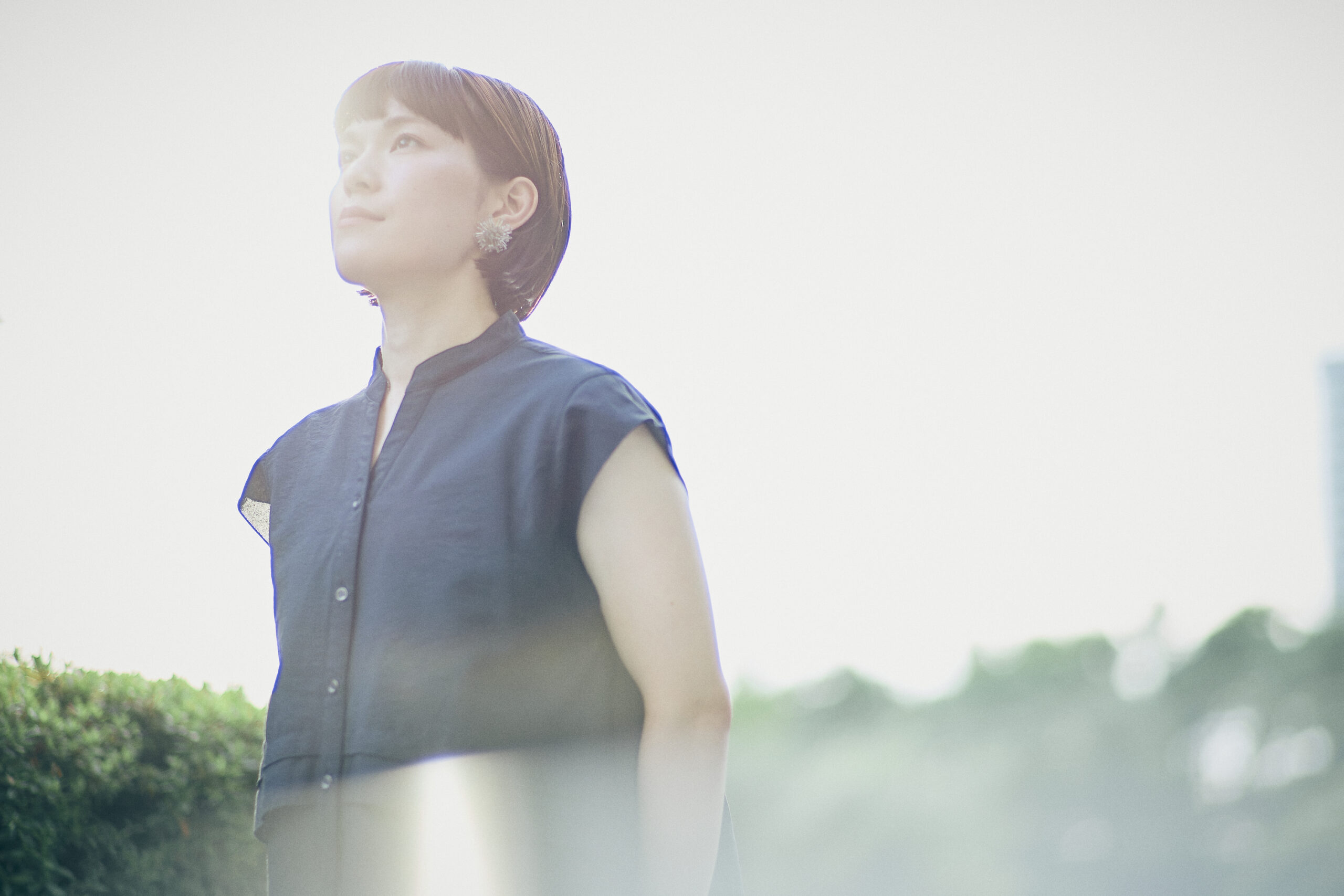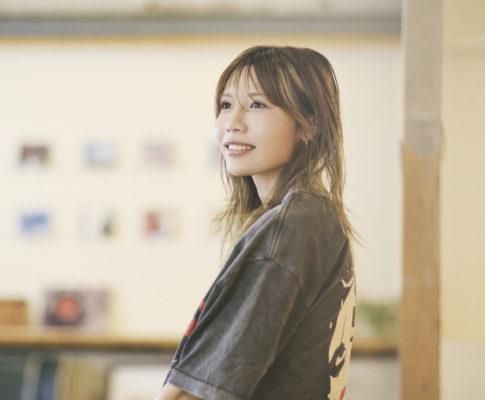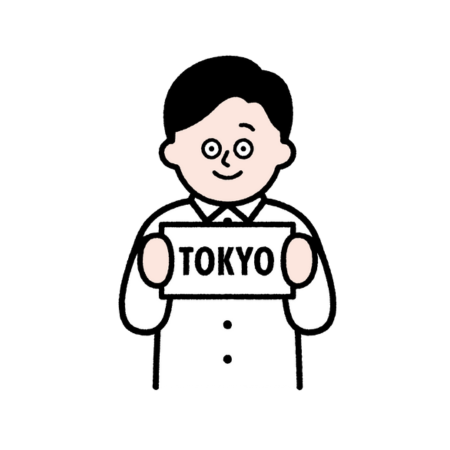目次
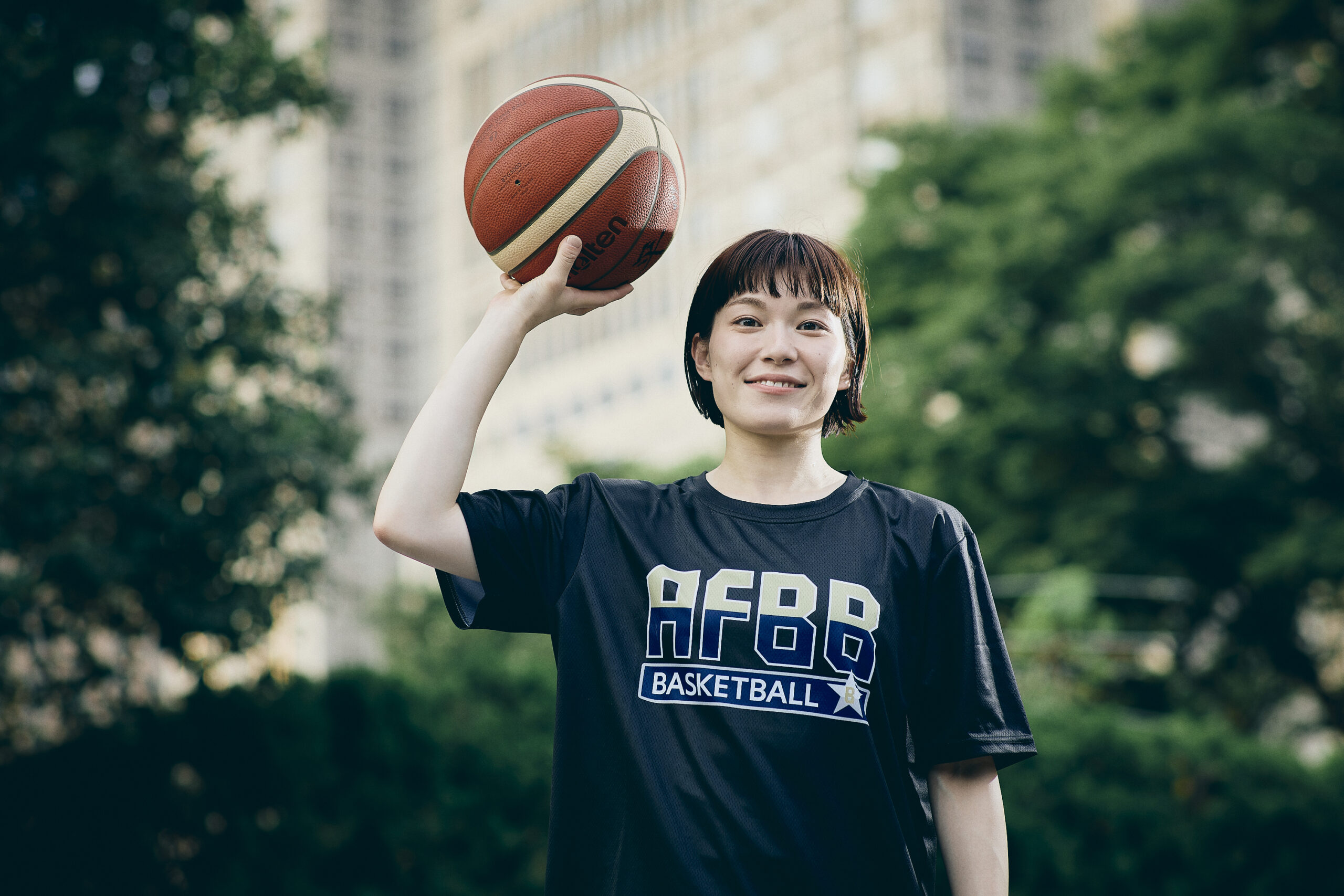
Yuzu Wakamatsu
Born in Tokyo in 1995. AFBB and Tokyo scratchgirl.
She was diagnosed with sensorineural hearing loss when she was in elementary school and lives with hearing aids. She started playing basketball in elementary school, went on to Chiba Eiwa high school, and Edogawa University, which were both powerhouse schools.
After becoming a member of society, she discovered Deaf basketball, and at the age of 29, she was selected to represent the Tokyo 2025 Deaf Basketball Women’s Japan National Team. At the 2024 Asia-Pacific Deaf Basketball Championship held in Melbourne, Australia, she led the team as a point guard and contributed significantly to the victory. She also won the tournament MVP and is motivated to win her first gold medal at the upcoming Deaflympics.
Unacceptable encounter with “Deaf”
――Please tell us how you started playing basketball.
When I was in elementary school, my friends invited me to watch the mini basketball club team practice. It was so much fun when I touched the ball for the first time that I immediately decided to do it on the spot. Playing basketball with my friends on a team outside of school felt special and I was very happy.
――Have you been dedicated to basketball since you were in elementary school?
Yes, I was. My hometown is Miyagi in Adachi Ward, but I wanted to play in a strong team in junior high school, so I went on to Adachi 9th Junior High School, which was outside the school district. I used to transfer buses and trains for a long time every morning, so now that I think about it, it was quite a big move for a junior high school student. However, daily practice was fun, and I was able to grow while immersed in it, and it was a time when the team produced results, and I was selected as a member of the Tokyo Metropolitan Selection as an individual. Due to that, I went on to Chiba Eiwa High School, which was a powerhouse high school.
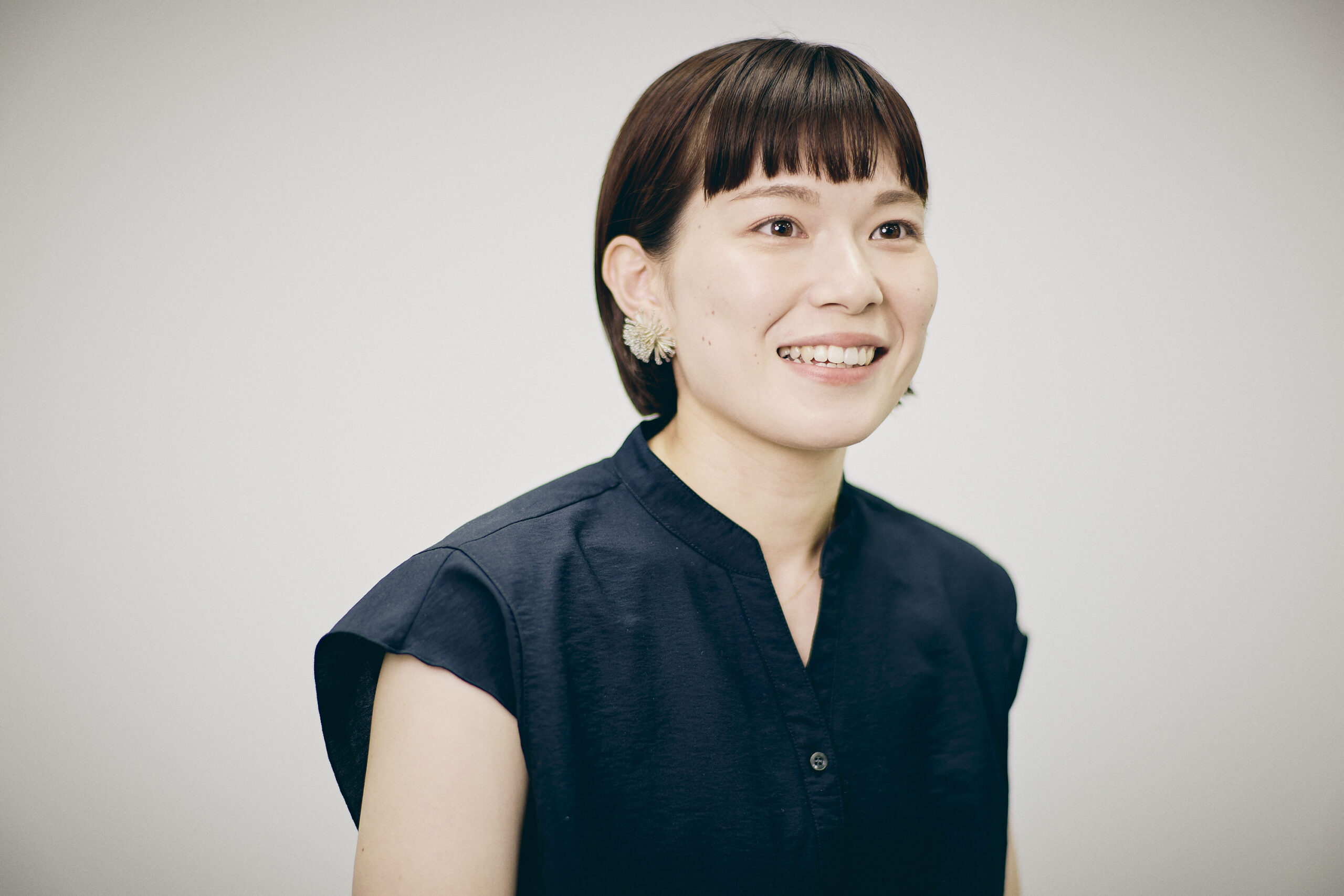
She was just enjoying basketball.
――Did you already have a desire to play basketball in the future?
Yes, I did, and I was approached by Chiba Eiwa High School along with my classmates from Adachi Ninth Junior High School (Kanae Hoshi, who retired from professional basketball this year). It was a grateful opportunity, so I wanted to give it a try.
――When did you first discover Deaf basketball?
After entering university. I went on to Edogawa University, a powerhouse team famous for its rigorous training. I had hearing loss, so one day my trainer asked me, “Why don’t you try Deaf basketball?” But at that time, I couldn’t see the positive side of it… and I hit out because I was so frustrated, “Does that mean you don’t need me on this team!?”
――Why did you react like that?
Of course, my trainer was just concerned about my ears and made a suggestion. But at that time, it was difficult for me to accept that I was Deaf, and I was hesitant to get a disability certificate. Now that I think about it, I should have tried Deaf basketball earlier, but I was just at a sensitive age, and I couldn’t listen to the trainer’s words.
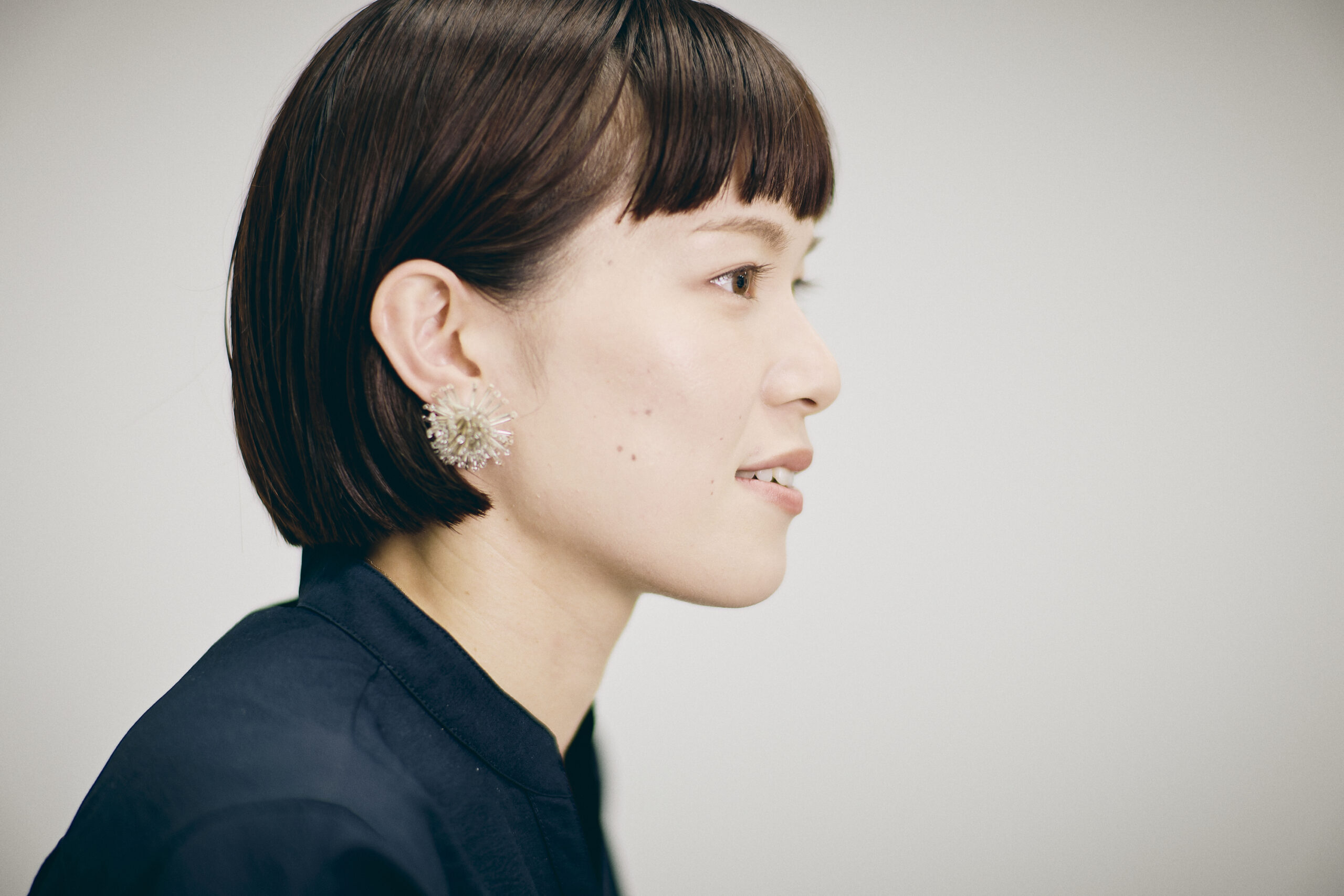
――I see… When did you find out you had hearing loss?
When I was in elementary school. I was told that I couldn’t hear high-pitched sounds during the hearing test during the medical examination, and that’s when I found out that I had sensorineural hearing loss. I think it was probably quite difficult to hear the sound of the whistle, but I was not aware of it at all. In fact, until high school, I didn’t have much trouble playing because of my hearing loss, and I started wearing hearing aids when I became a member of society.
――So does that mean you have learned sign language in the past few years?
Yes, about three years ago. I started studying on my own and managed to learn it while being taught by everyone on the team. I am finally able to communicate in sign language.
――Currently, you belong to both the adult club team “AFBB” for the hearing, and the Deaf basketball team “Tokyo scratchgirl”. What was the process of not being able to take on the challenge of Deaf basketball when you were a student?
After graduating from university, I belonged to the business team for about two years, and then I transferred to AFBB in the same league. It was a very good team even when competing with them, and I had acquaintances, so I listened to various stories and participated in practice, and it was a more attractive team than I imagined. So, I voluntarily transferred to that team.
After that, a senior at AFBB gave birth to a child, but that child had severe hearing loss. It was a big shock to me, as I rarely had the opportunity to interact with Deaf people in my life, and I was very inspired and gave me courage.
At the same time, my hearing was deteriorating from when I was a student, and I had more opportunities to face the reality of “Deaf”. In such a situation, for the first time, I felt that I wanted to try Deaf basketball. So, I contacted my trainer from university and requested to introduce me to the Japan national team selection committee for Deaf basketball.
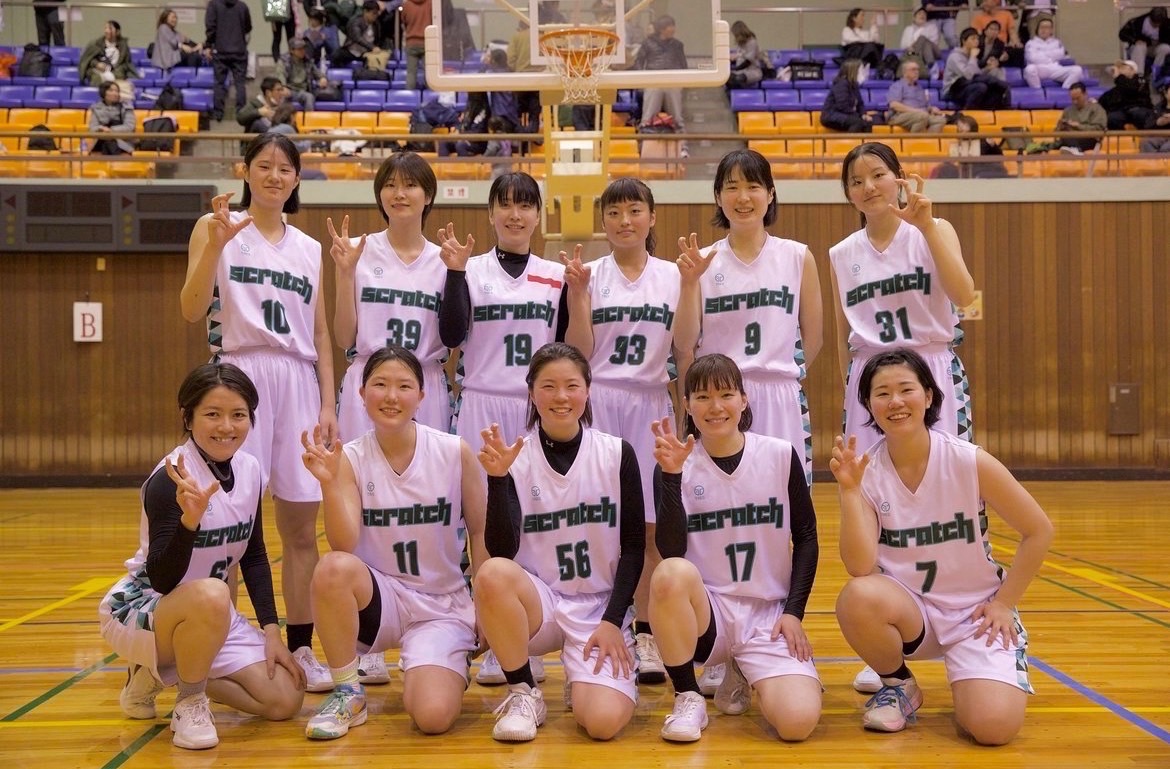
Many members she met at the Japan national team selection committee also belongs to the team
――In addition to you, there is also a Japan national team member of Deaf basketball in AFBB?
That’s right. It is Kaori Maruyama and Makoto Kawashima. I met them at the 2022 Japan national team selection meet. In order to hone my skills more, it is better to be able to practice with a high-level team, and that experience will be returned to Deaf basketball. The AFBB coach took this idea and both of them accepted it. AFBB is a team that understands very well, such as playing a warm-up game with the Japan national team of Deaf basketball.
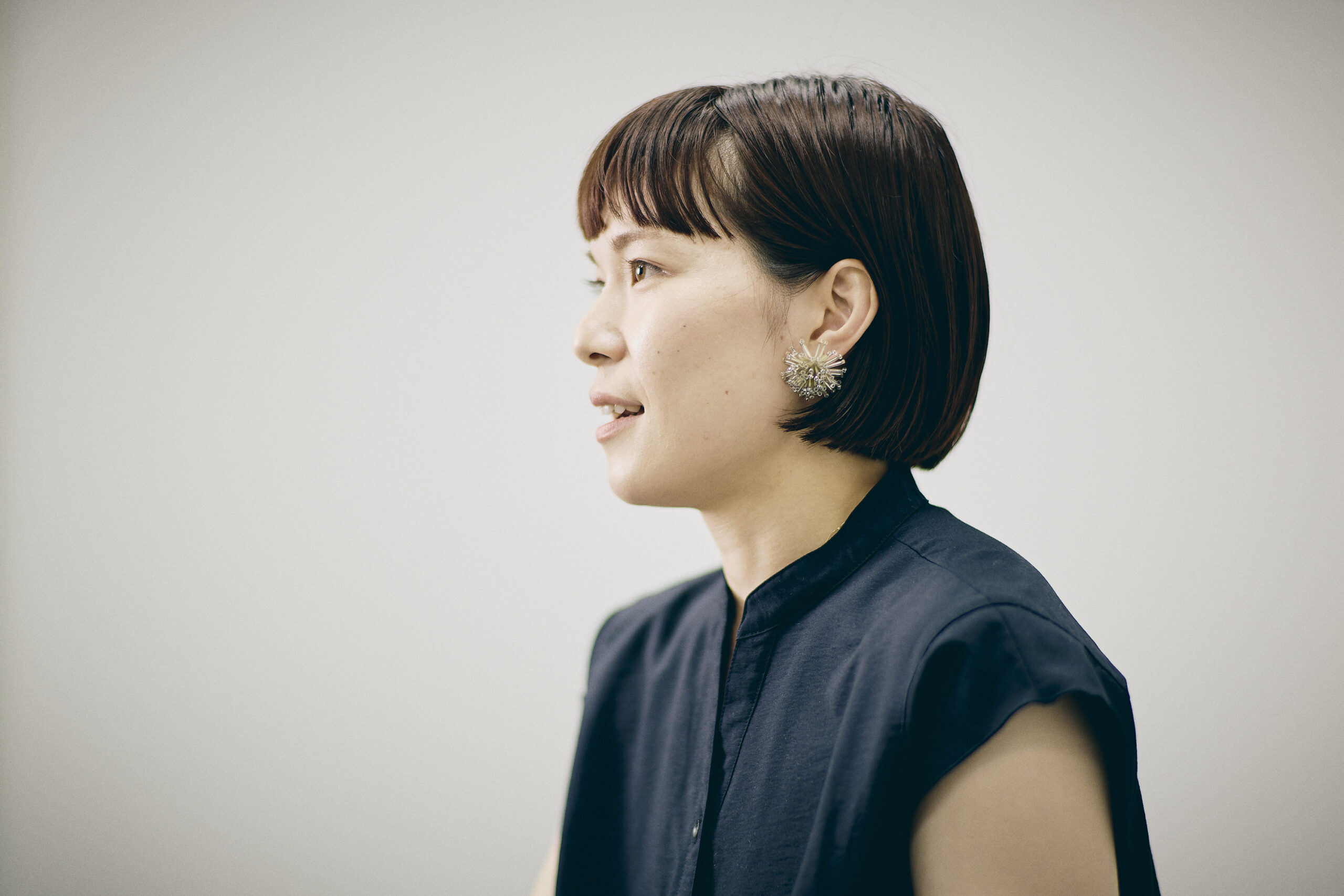
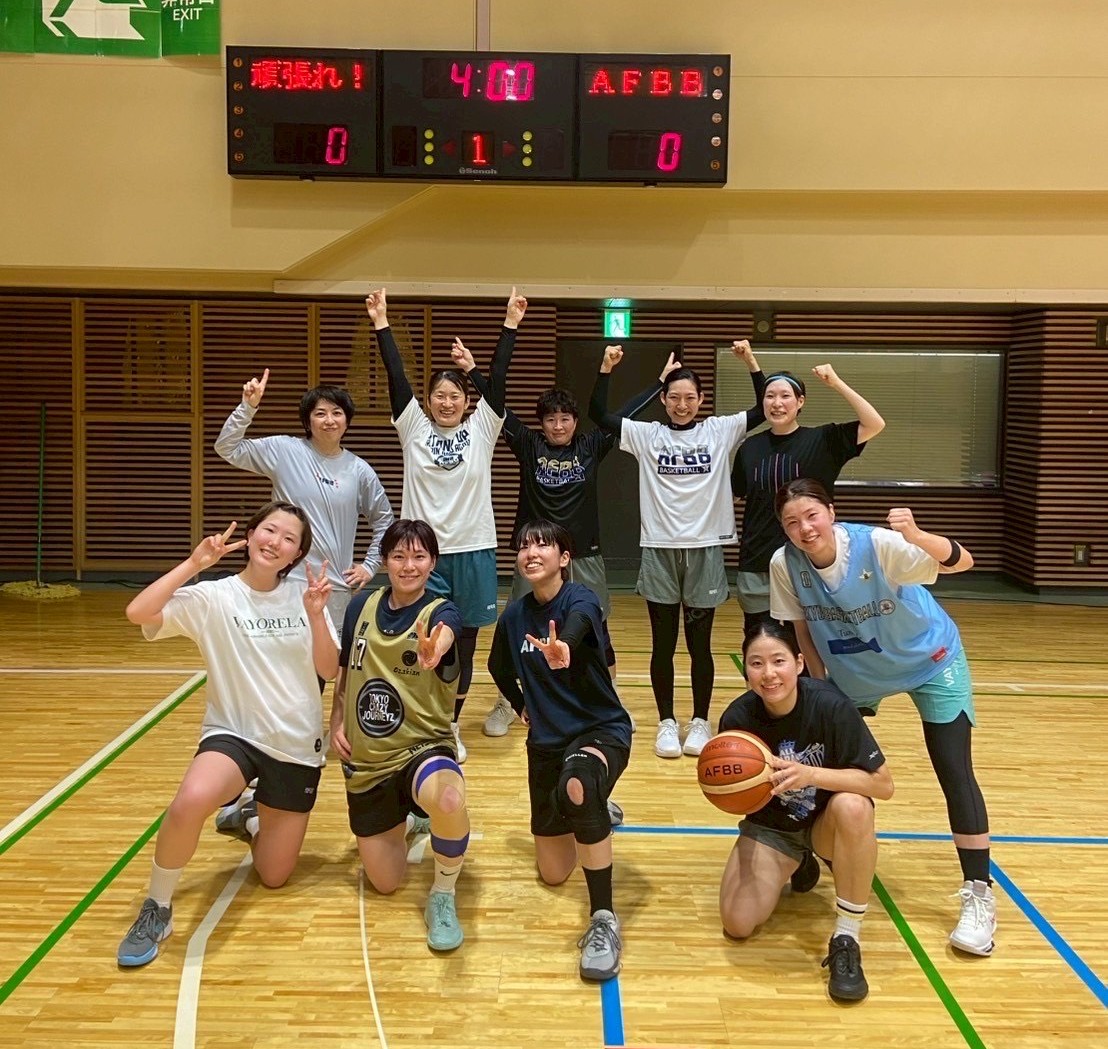
Currently, there are three members of the Deaf Basketball Japan National Team
Team play in silence
――When you started playing Deaf basketball, did you find any difficulty in the difference between basketball with the hearing?
It was making communications. For example, there is a play called “screen”, where teammates act as walls and interfere with the movement of the defense. The athlete who plays the role of this wall appears from a blind spot, such as behind the defense, so in the basketball for the hearing, we loudly inform the teammates’ defense that the screen has gone. So, the defense can notice behind you and avoid the screen.
However, in the case of Deaf basketball, you can’t hear the call from behind. If you’ve ever seen basketball, you may know that everyone is calling out to each other in the basketball for the hearing. That’s how team play is established. But in Deaf basketball, that voice cannot be heard. At first, it was really frustrating and difficult.
In basketball for the hearing, I have been told to call out by communicating with each other in practice and match, so if I can’t do that at all, it could be called a “different sport” as it was so different.
――In the case of Deaf basketball, how do you signal each other?
I will signal with sign language if I am in sight of my allies, but when I can’t see them, I will hit the floor with my feet. In the gymnasium, the vibration resonates well, so I realize that there is something going on. If the distance is close, I may signal by touching their shoulders or pressing them lightly.
――Sign language is not easy in a sport with intense movements like basketball, right…?
Yes, that’s right. For example, when I want to convey “rebound” in sign language, it would be very long if I did it with finger spelling, so I decided on an original concise sign language and shared it with the team. During the match, we have to communicate in an instant as we are always moving, so it is very important to be able to communicate instantly with concise sign language.
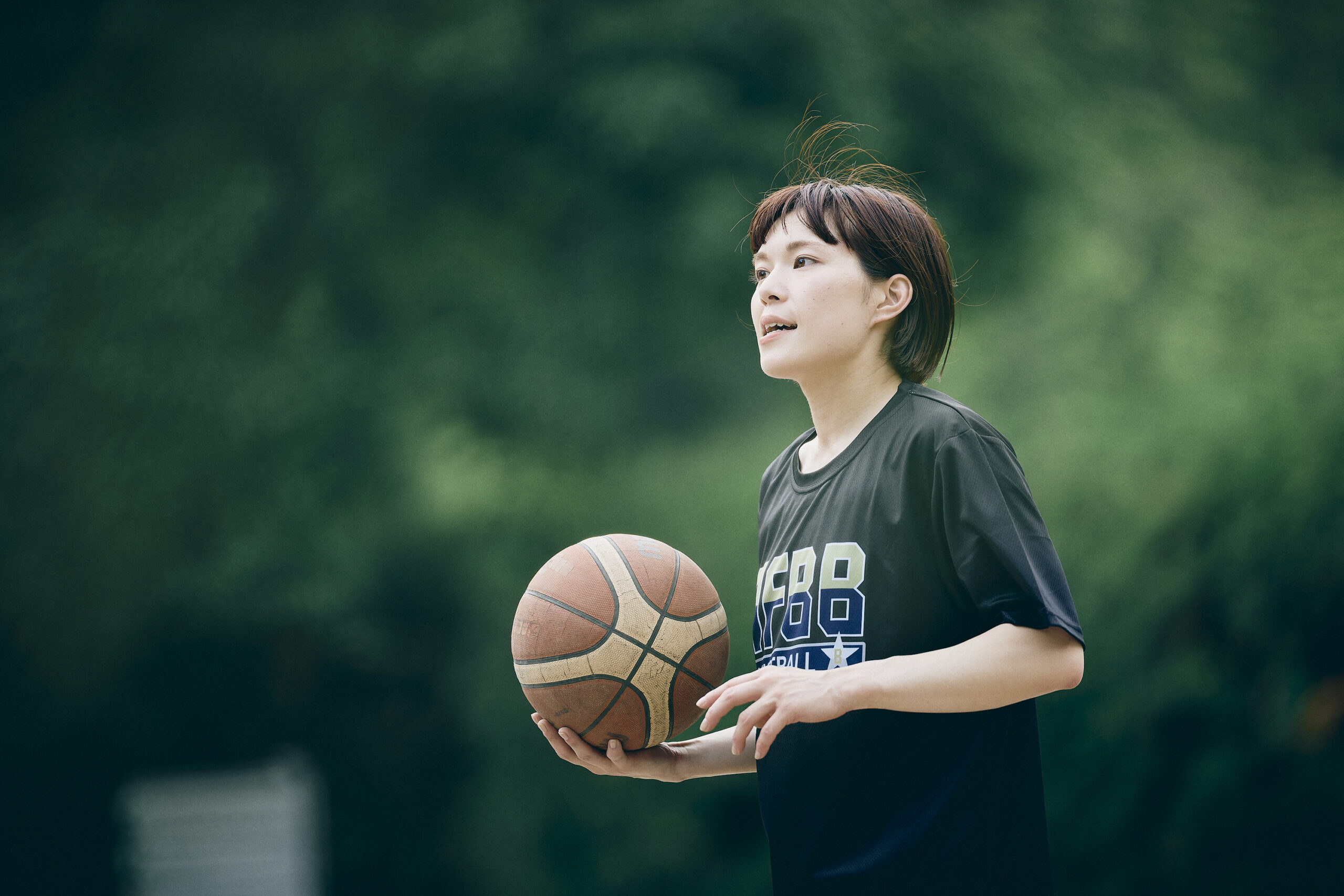
――I have heard about the word “sign basketball”, but is it different from sign language?
Yes, sign basketball is created so that everyone can imagine the same play with hand movements that are different from sign language. It is not Japanese or sign language, but a visual language specialized for basketball. If we can make it a common language, we can enjoy basketball with foreigners who speak different languages, whether we can hear it or not. Ideally, I would like sign basketball to spread more, but it is still unknown.
――Is there anything that you keep in mind during a Deaf basketball match?
I am in charge of the position of point guard. It is the role of giving instructions to the team and leading them to score, but since there is no voice, it is necessary to give more accurate and concise instructions. That’s why I just look around and keep in mind to make a decision calmly.
The other thing is to make eye contact with my teammates. In Deaf basketball, eye contact is the key. When things get tough, we tend to look down, but that is fatal in Deaf basketball. That’s why I always try to look up and make eye contact from practice.
――I think some people will watch Deaf basketball for the first time at the Deaflympics. What can we focus on to make the tournament more enjoyable?
For those who have only seen basketball for the hearing, I think you will be shocked by the silent scene and the unique atmosphere of Deaf basketball. I was actually like that. Since there is no call from the athletes, only the sound of shoes clattering and the sound of shot being made can be heard in a quiet space. I would like you to experience this!
And how do the athletes communicate with each other in the fast-paced match. I think it would be interesting to pay attention to that as well. As an aside, I have a habit of stumbling my feet even in the match for the hearing. The opponent mistakenly thinks that I am irritated, and sometimes I almost laugh at that situation (laughs).
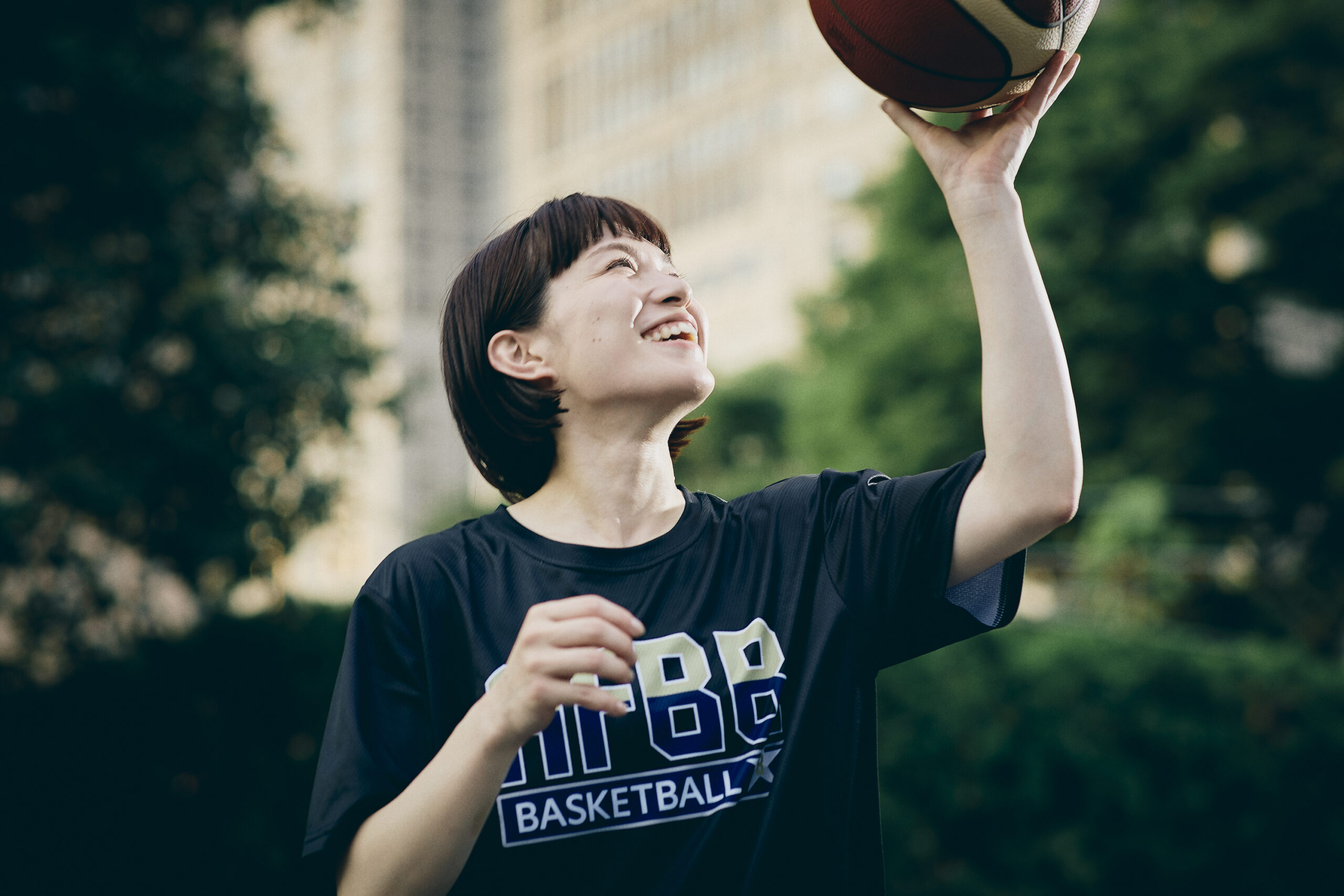
“Frustration” as the driving force. Days of frustration
――What are the strengths of your performance?
The strength I am aware of is defense rather than offense. By applying pressure aggressively, I develop a match that does not let the opponent take control. I think that’s my strength. Until now, I have been evaluated for my defense and have often been able to play in important situations. On the other hand, there were times when I was taken down because the point guard was not suitable (bitter laugh). Still, I try to create the flow of the match by making use of my natural speed, and I am able to contribute as a point guard in Deaf basketball.
――Since you have dedicated yourself in basketball since elementary school, have you ever wanted to quit or experienced setbacks?
Yes, a lot (bitter laugh). Until junior high school, I played as a mainstay and was selected for the Tokyo Metropolitan Selection, but from high school, I faced a series of setbacks… It’s not all pleasant memories. Of course, I have been able to continue because I like basketball, but the driving force of “I want to be more recognized” is a bigger part of it.
――So that’s the driving force.
It was a powerhouse school, so it was a place where only members of the prefectural selection came in. It was the first time I experienced a drop out as a member, and I didn’t get a uniform. That was really frustrating and shocking. I was on an expedition tour from the next day, but when I got home, I cried and cried and cried a lot, and I slept without packing… In the end, I left with my puffy eyes, but I still can’t forget the frustration I felt at that time.
I wasn’t very good at scoring goals from that time, but I was still actively trying and desperately appealing. However, I couldn’t get into the squad easily, and even if I did, my playing time didn’t increase, and I realized that in the end, it’s a world of ability. I thought many times, “Should I quit?”
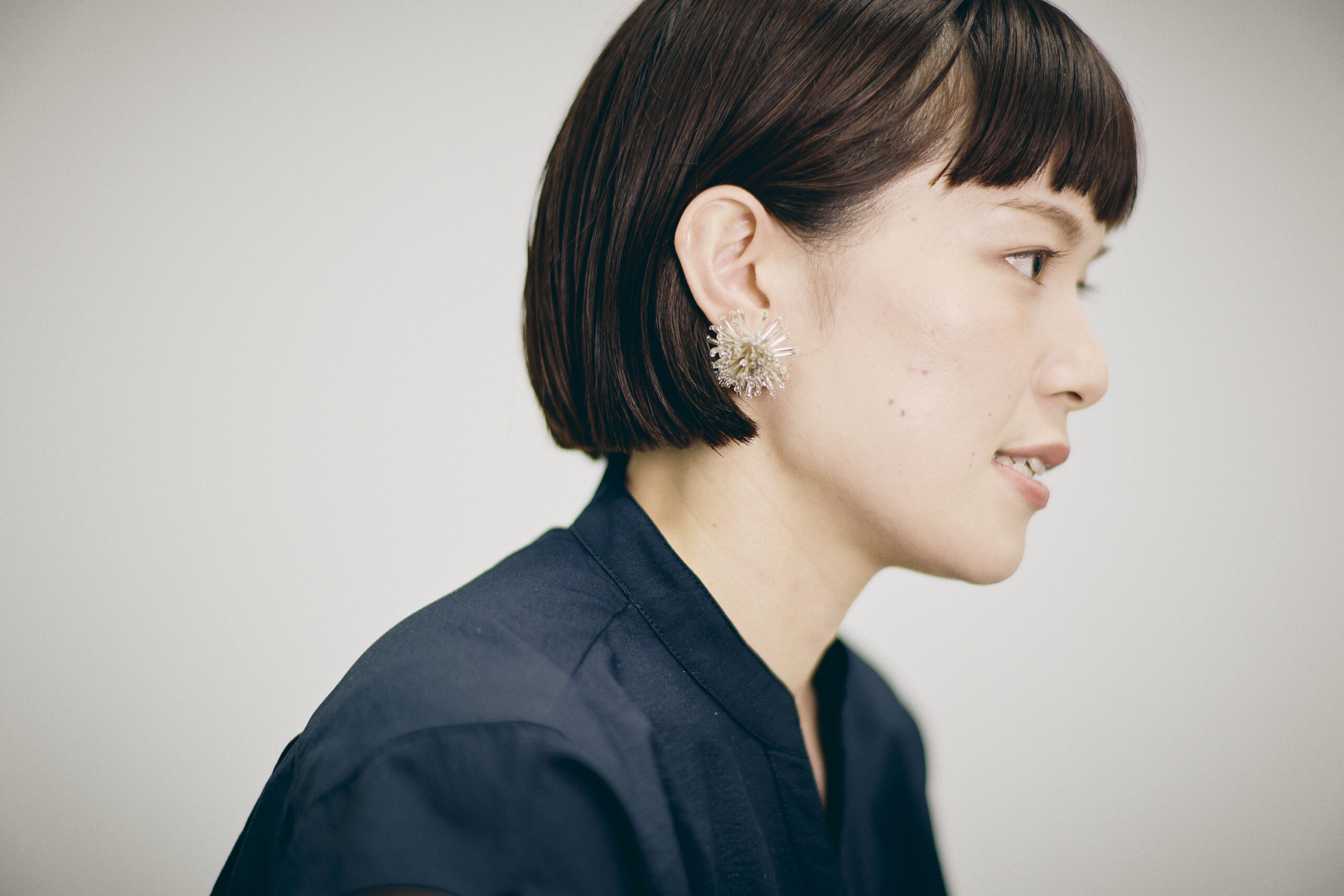
――When did you start getting a lot of playing time in high school?
I was sometimes used in key places and important situations, but it was a three-year period when my playing time did not increase as much as I expected… When I was in the third year of high school, our generation participated in the Winter Cup (National High School Basketball Championship) in December for the first time, but I was told that I could decide on my own whether to stay without retiring because the third year had exams. At that time, only three of the 10 third-year students stayed, including me. So, although it was only a short period of time before retiring, I was finally able to get solid playing time.
――When you experienced setbacks in high school, how did you overcome them?
Through a “spirit that has no choice but to do it”. In the end, there is no solution other than working hard, and in terms of my personality, I think I would absolutely regret quitting if I did so.
Also, my mother’s presence was also a big deal. “The important thing is not only to play in the match, but what you did,” and she found value in the process rather than the result, which really saved me. My mother is the type of person who can cheerfully say, “There is no point in crying!” even if something happens. My mother has probably been the most influenced in terms of my way of thinking. Although, we get into fights a lot (laughs).
――She is a mother who has lots of guts. What was it like to be active in university?
Even in university, I had a hard time increasing my playing time. In that case, when I entered the fourth year, I ran for the position of captain. However, it was difficult to say harsh things to the team regardless of what kind of situation I was in. When I was in the fourth year, my mental toughness outweighed that I couldn’t play in the game.
――Why did you decide to run for captain?
When I was in the fourth year, as substitute coach came as our coach went to study abroad as a coach. However, the absence of the coach caused anxiety and confusion among the athletes… I saw a situation where someone had to put together, so I decided that I had no choice but to do it. It was difficult, but there were juniors who admired me and followed me, so looking back, I think it was a very big asset.
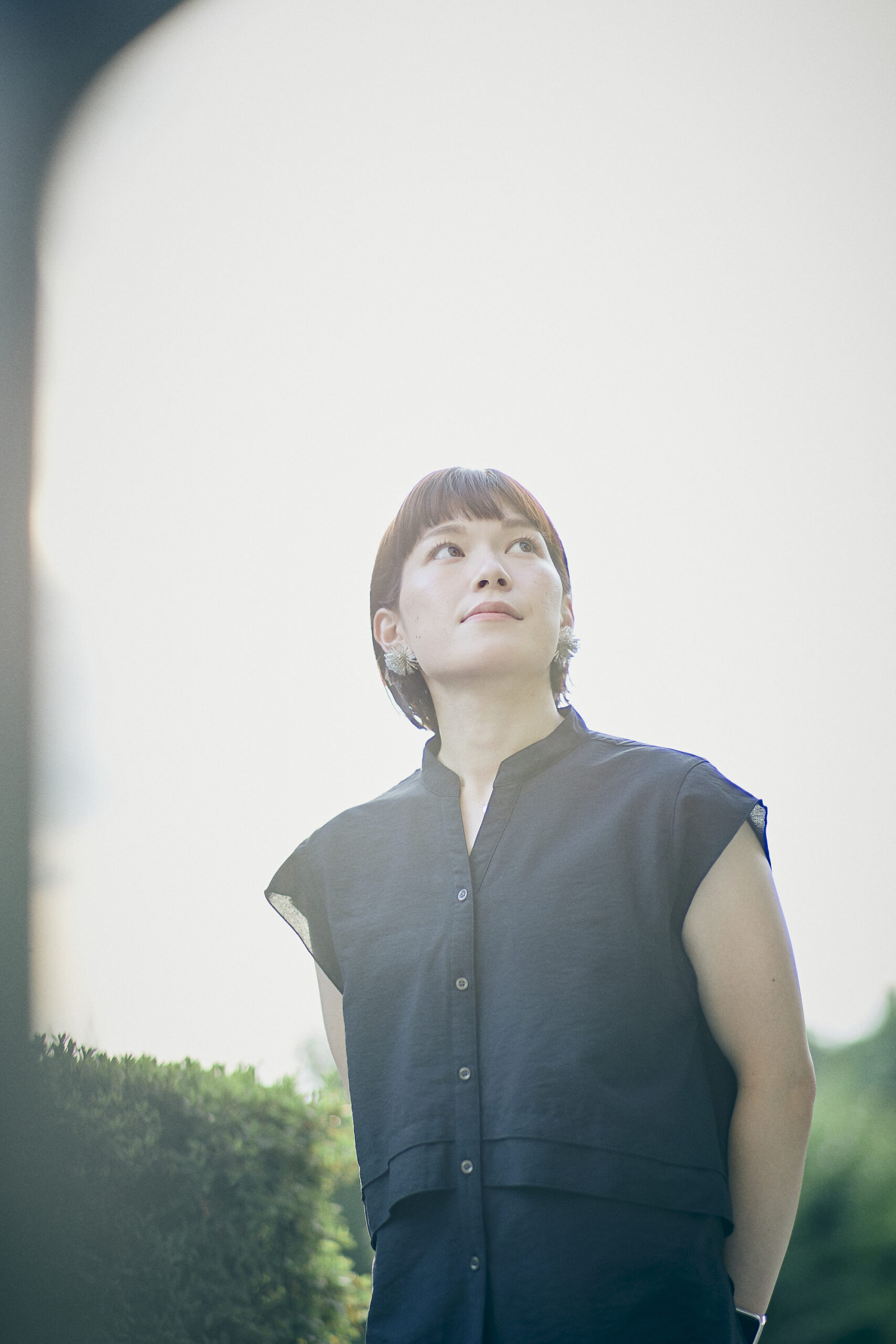
The key to an unforgettable match is always…
――You have overcome many things, but please tell us about the tournament that has left the most impression on you.
The first thing that comes to mind is the final league of the Inter-High School prefectural qualifiers. Only two schools from the prefecture can participate in the Inter-High School Championships but we lost an important match, and it became a very difficult situation. In the last match, we were in a situation where if we win by more than 20 points, we can go to the Inter-High School Championships, and the opponent was also a high school that was not weak in the best 4 regulars. To be honest, it was a tough situation to win by a large margin, but I fought desperately and managed to win. Defense was the key in that match, so I was able to use my strengths to complete the tasks that were required, which gave me confidence.
――How have you been since you became involved in Deaf basketball?
It’s the final of the “Asia-Pacific Deaf Basketball Championship” (hereinafter referred to as the Asian Games) that I participated in last year. At that time, three countries participated: Japan, Australia, and Taiwan, and Japan won the championship by beating Australia 85-67 in the final. There were times when it was more difficult than the goal difference, but it meant a lot to the Japanese national team that we were able to persevere and win without giving up.
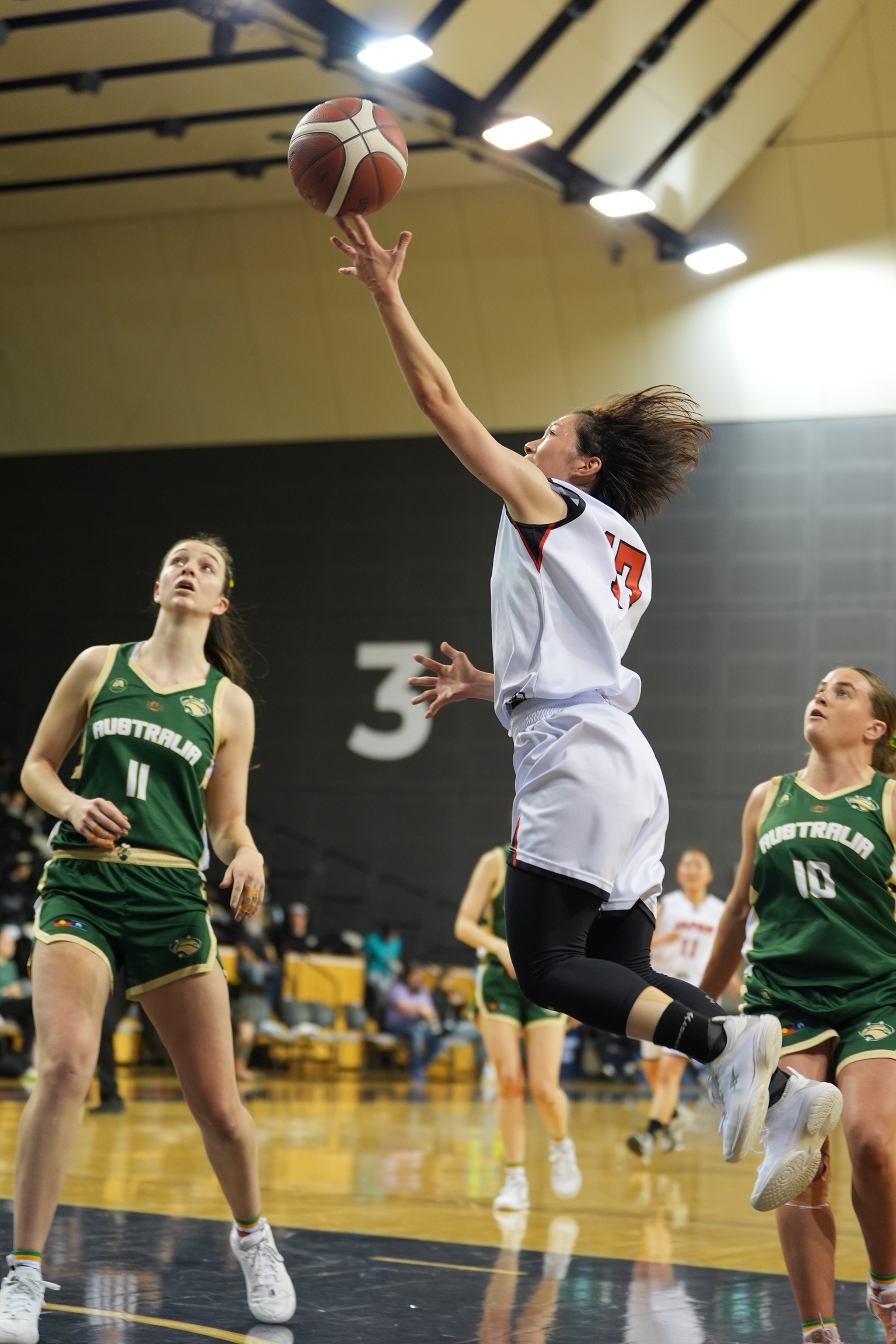
――Moreover, you were also selected as the tournament MVP. What do you think was the reason for the victory of the Japan national team?
Many Australian athletes were close to 190 cm, and their physical strength was overwhelming. Among them, Japan was the best in terms of speed, taking advantage of its small physique. Furthermore, what the team decided was “thoroughly implement aggressive defense.” In the final, we were able to launch a particularly aggressive defense and bring it in the hands of Japan. I think that was the biggest reason for our victory.
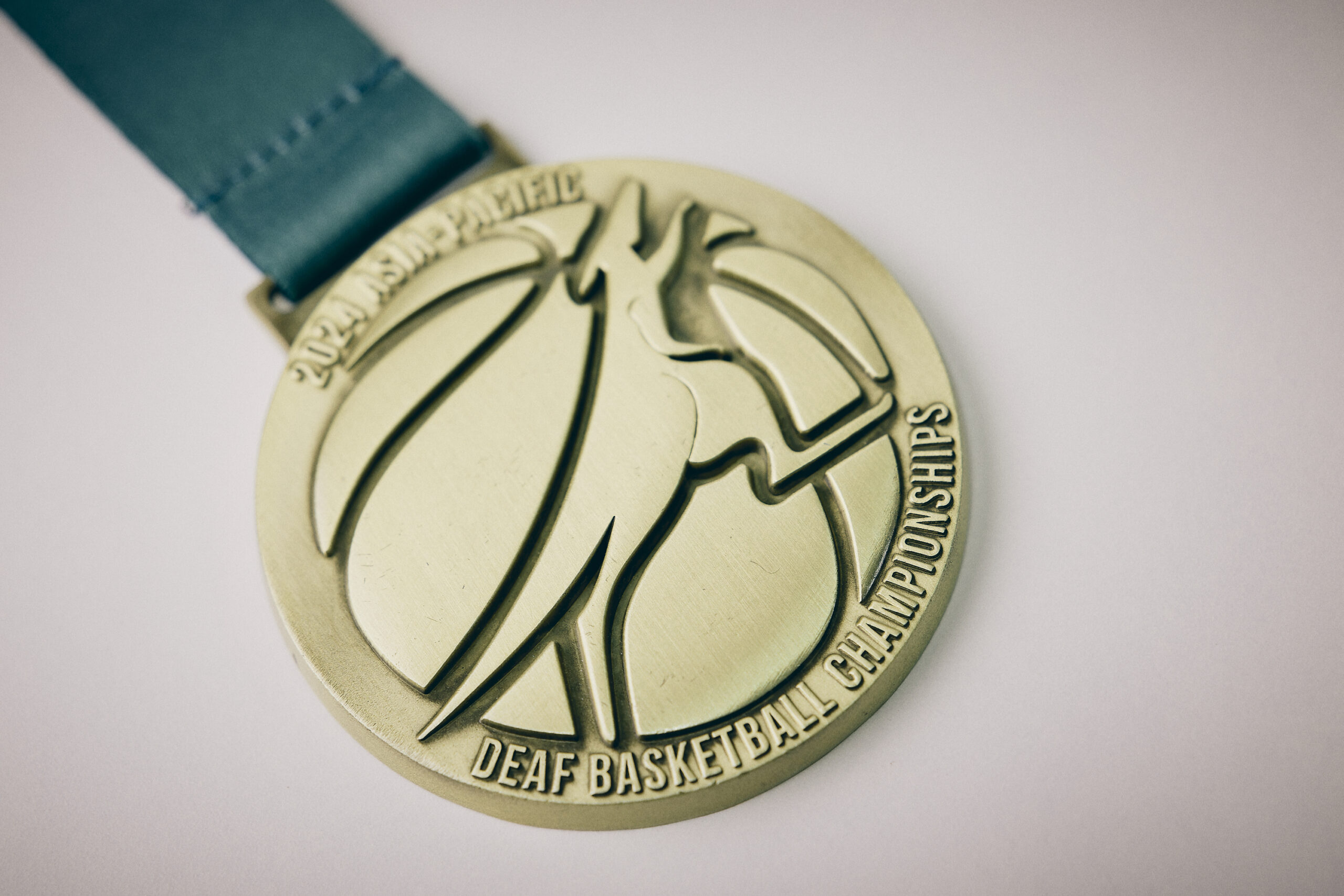
By making the most of her own strengths,
――I think the young athletes were impatient with the development of a close match, but what kind of call out did you do?
Australia was scoring three points, so I think there was certainly a lot of impatience. Even if they scored a goal, I calmed them down by saying, “It’s okay, so let’s defend one by one.” However, when it becomes painful, I may bow down and lose eye contact with my teammates. But eye contact is important for Deaf basketball. I strongly conveyed during the match, “It’s okay to make mistakes, so let’s look up and make eye contact!”
――I heard that it was held in Melbourne, Australia, but were you able to enjoy a little sightseeing?
Yes, we had 2-3 days off, so we all ate together. It was my first time in Melbourne, but the coffee was very delicious. Personally, I like alcohol, but as there were also underage athletes, we toasted with coke on the day we won (laughs). I bought a lot of Australian wine as a souvenir.
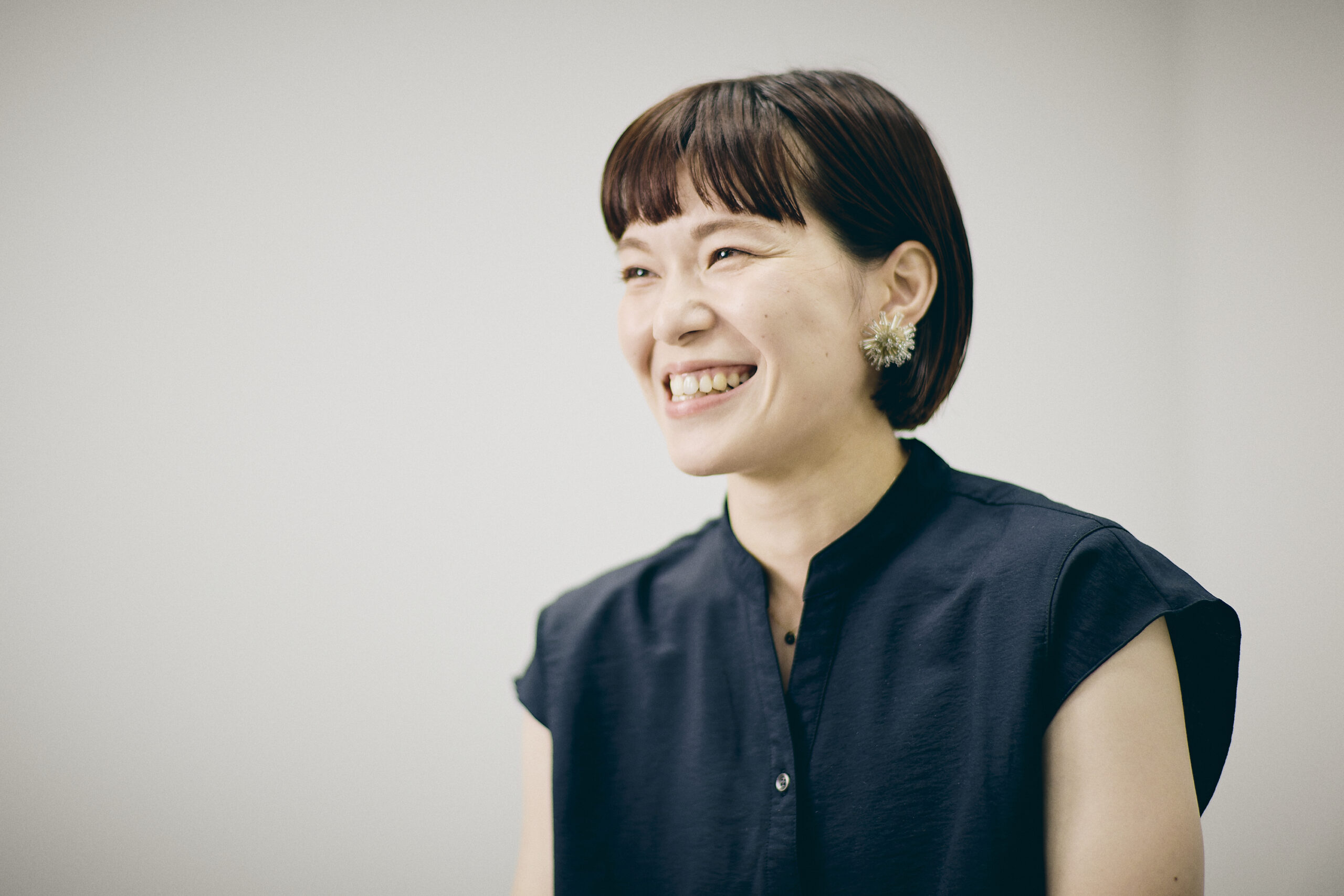
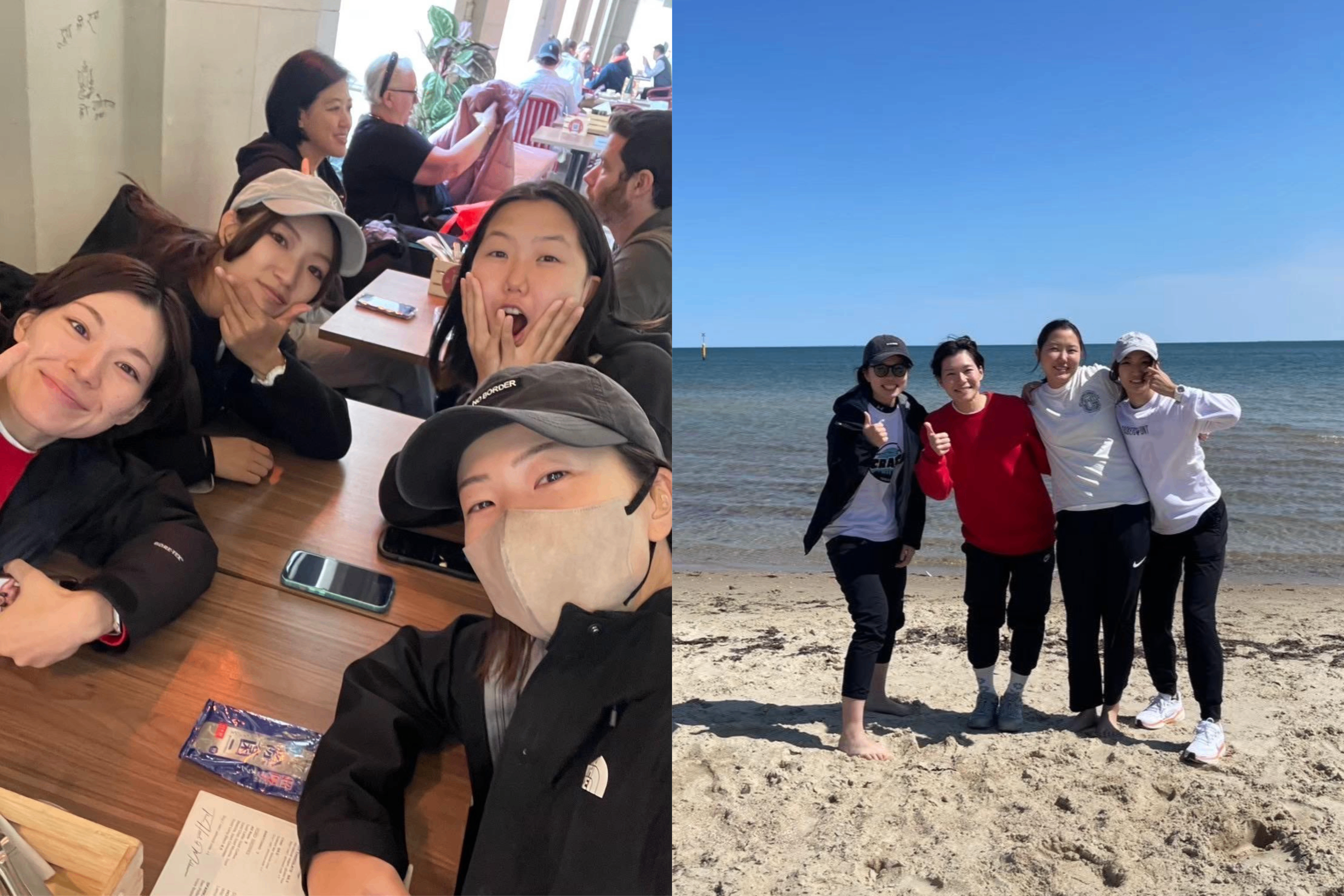
The first Deaflympics is a mixture of joy and tension
――I think the Asian Games were a good start to the Deaflympics. This will be your first time being selected for the Japan national team, but please tell us how you feel now.
I feel that I have finally stood on the starting line in competing on the world stage. On the other hand, I also felt pressure. Deaf basketball has been built up for many years, and my experience is still relatively small compared to that. Now that I have become a member of the Japan national team, I have a sense of responsibility that I have to produce results, and while I am happy, I am also nervous.
――Where do you want to aim at the Deaflympics?
Of course, a gold medal! I would like to show it with results in order to repay those who have supported me so far.
――What are the issues you want to strengthen?
My challenge is to improve my scoring ability. At the Asian Games, I was desperately trying to encourage my teammates, but in fact, I myself was intimidated by the strength of foreign athletes and there was a part where I couldn’t ride a good wave. Western athletes are even stronger, so we need to take measures and be prepared to how to score goals from now on.
I’m small, so I think there’s a limit to just driving. That’s why I want to polish my shots in the remaining three months so that I can score outside shots like three-pointers with a higher probability.
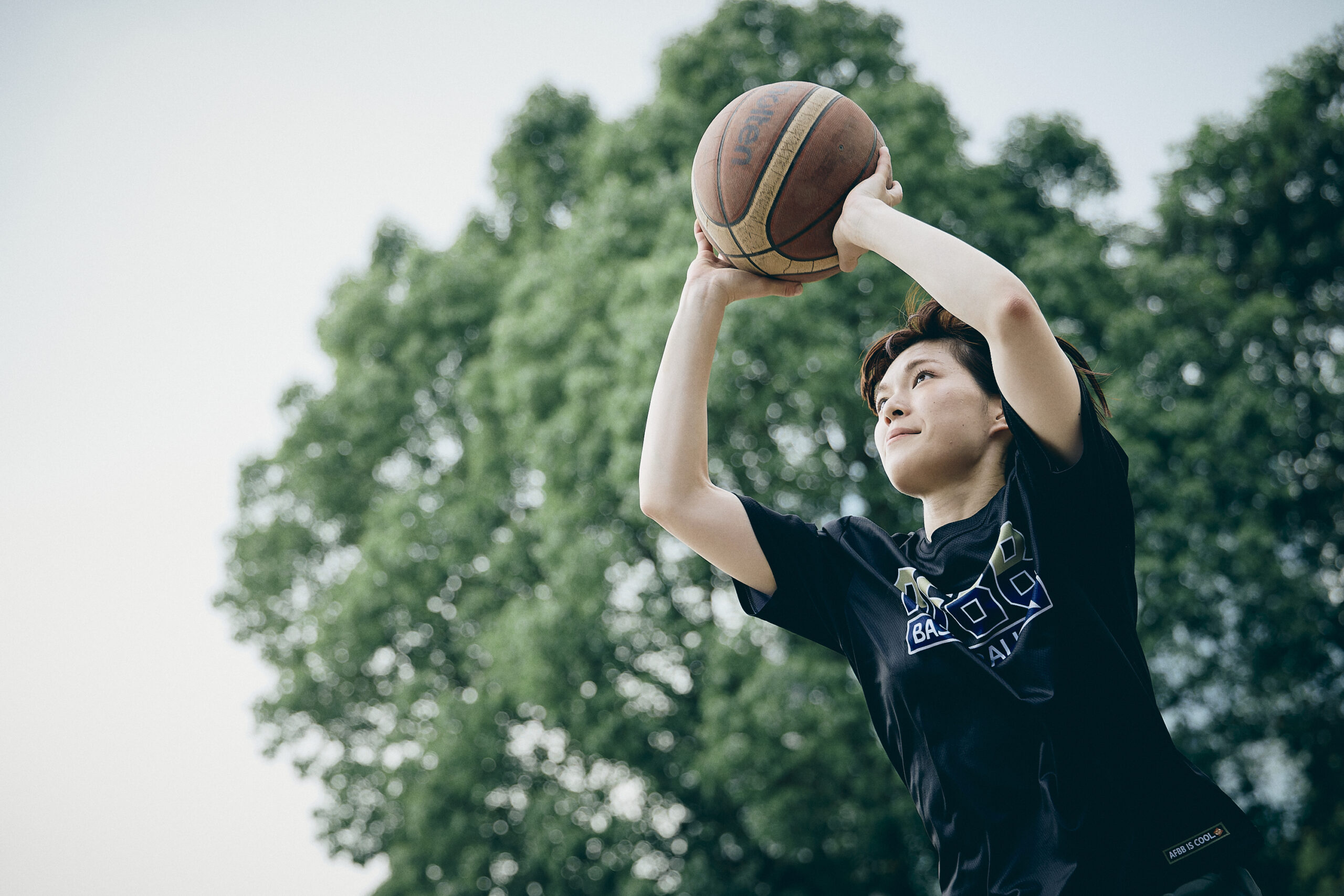
――Do you have an image of your vision for the future of the Deaflympics?
I haven’t seen it concretely yet, but I vaguely want to be in a position to convey the appeal of Deaf basketball. I found out that I had hearing loss when I was in elementary school, but even though I knew about the existence of Deaf basketball, I never had the opportunity. That’s why I want to create an opportunity for Deaf children to encounter Deaf basketball. On top of that, I would like to convey through my own experience that you can play an active role in sports even if you can’t hear it.
Loving hometown, Miyagi, Adachi Ward
――From here, please tell us about your private life. What kind of child were you?
Above all, I hated losing and had a manly personality. In my communication book in kindergarten, there was a comment from the teacher saying, “I was squeezing my friend’s arm and making my friend cry” (laughs). It seems that I was like that even in elementary school and my mother went around apologizing.
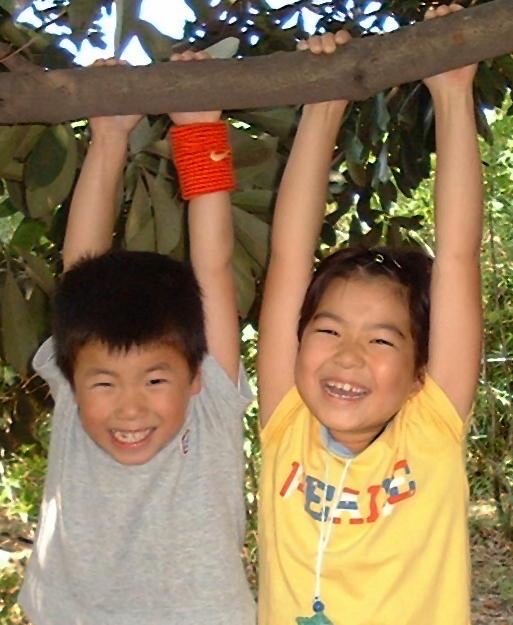
(Yuzu Wakamatsu on the right)
――Was that so!? I can’t imagine it from your smile now. When did you become more tolerant?
Until junior high school, I had a manly personality. I conducted the chorus at the graduation ceremony, but if the boys didn’t sing properly, I said, “If you guys don’t sing, go home!” After entering high school, I gradually became more mellow. I guess I’ve grown up~.
――You were born and raised in Miyagi, Adachi Ward, but what kind of place is it?
As you can see from the map, it is just like a delta between the Arakawa River and the Sumida River. You can’t go to the outside world unless you cross the bridge. Because it is isolated, culture evolves slowly, and things from a long time ago become popular. After a long time has passed, “Tamagotchi” became popular (laughs).
――Really! Even though it’s in Tokyo?
Yes, it’s not an exaggeration, it’s true! But it’s a place rich in nature, and the riverbed is open and really comfortable and it’s a place I really like. Because it is surrounded by rivers, there are some “mysterious rules”, and I grew up being told never to cross a bridge until I graduated from elementary school (laughs). So, on the day of the graduation ceremony, we all decided to cross the river to take a purikura photo (laughs).
――Wow (laughs). Miyagi, it’s an interesting place. So going to Adachi 9th Junior High School was quite challenging.
It was a little “journey”. Both elementary and junior high schools are located in the delta, so if it were true, everything would be completed only in Miyagi. That’s why children who don’t go out really don’t leave their hometown. Everyone in the town has raised me since I was little, so the distance between people is close to each other and it is a place with a sense of humanity. If you have a chance, please go there!
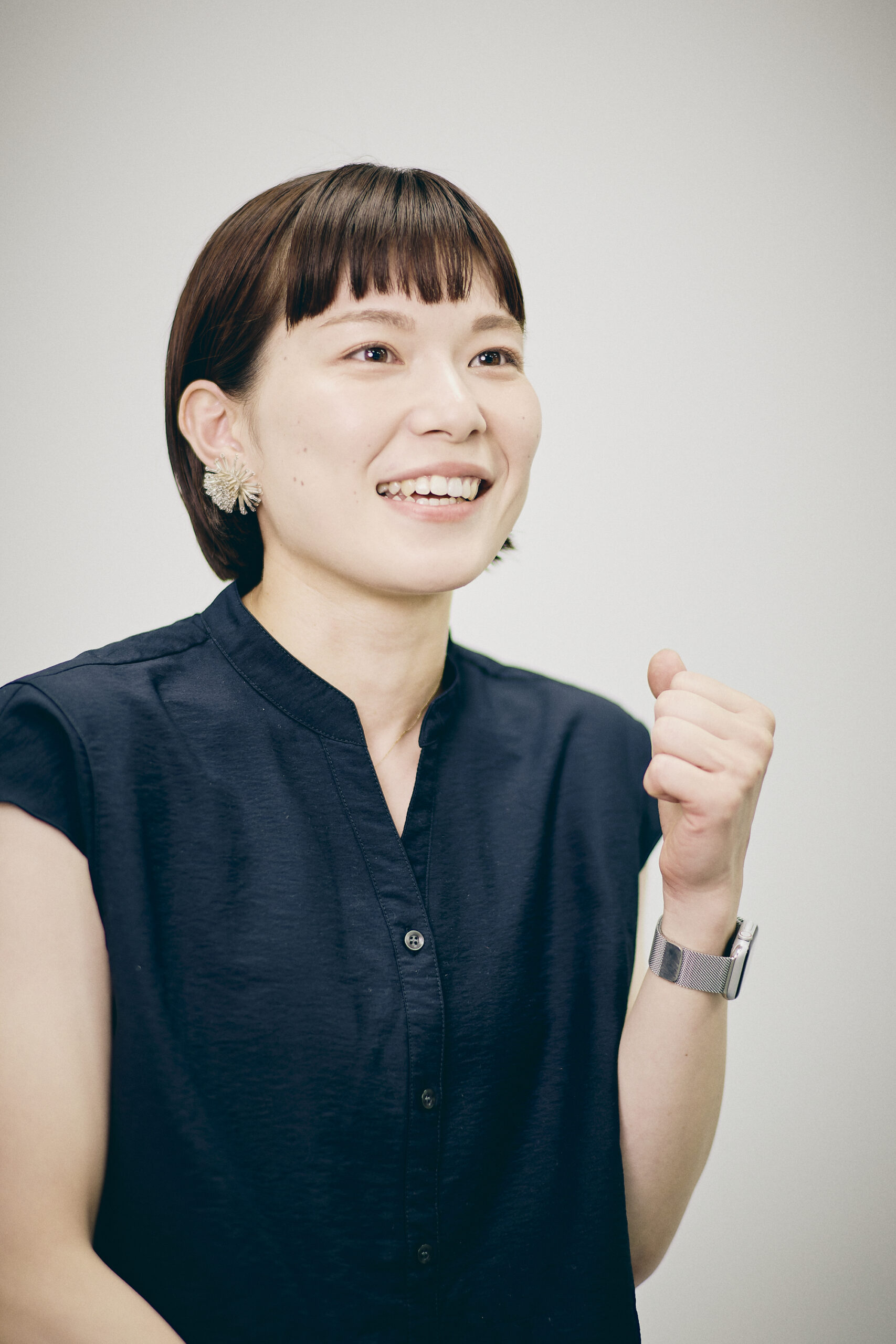
she talks about her beloved Miyagi area in Adachi Ward
Beer and fried chicken after work
――Do you have any hobbies or specialties other than basketball?
I like to draw. I used to draw portraits a lot since I was little, but after I became a member of society and started to have a tablet, I started drawing more often. I like to draw pictures of dogs, and I also make LINE stamps and make original postcards.
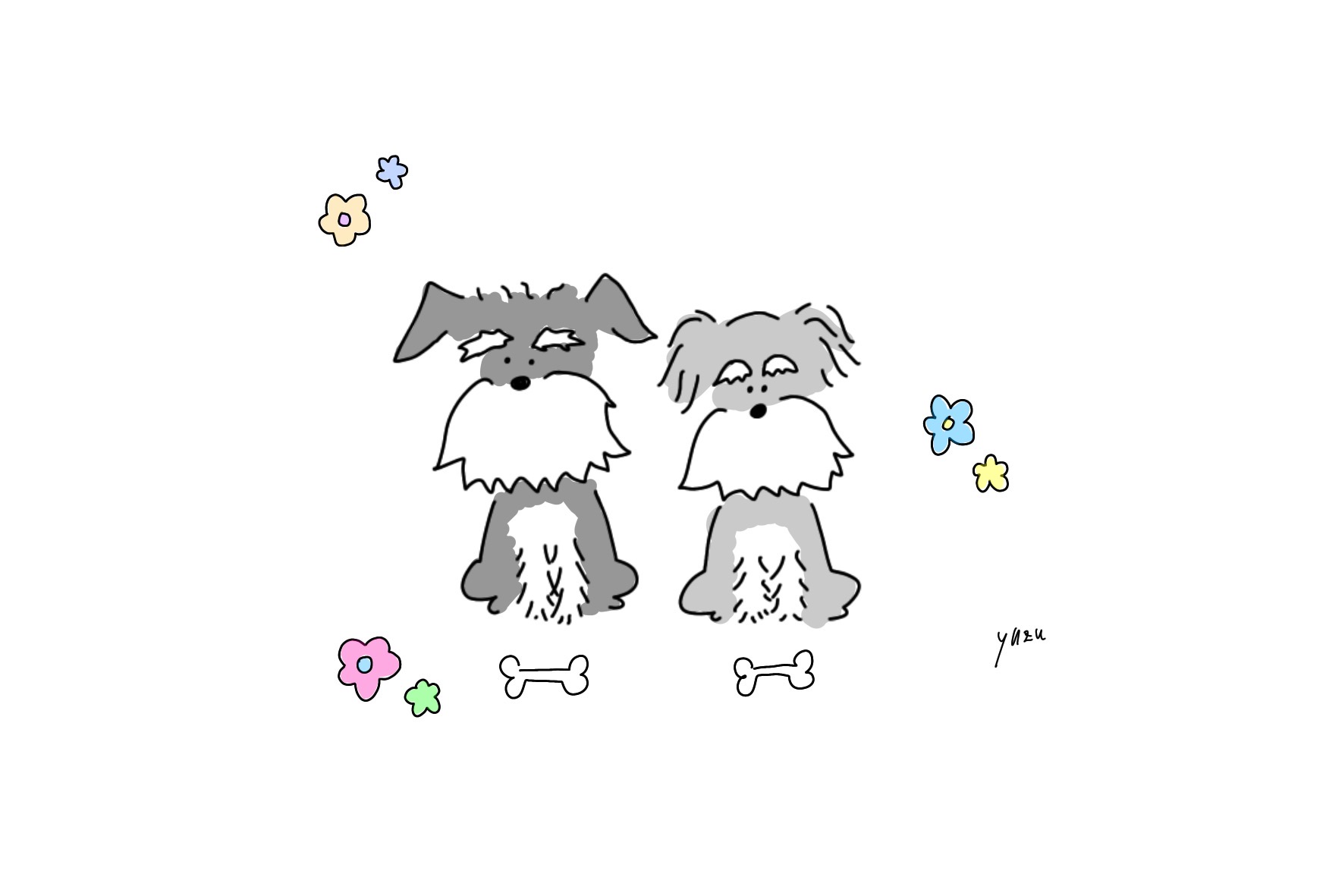
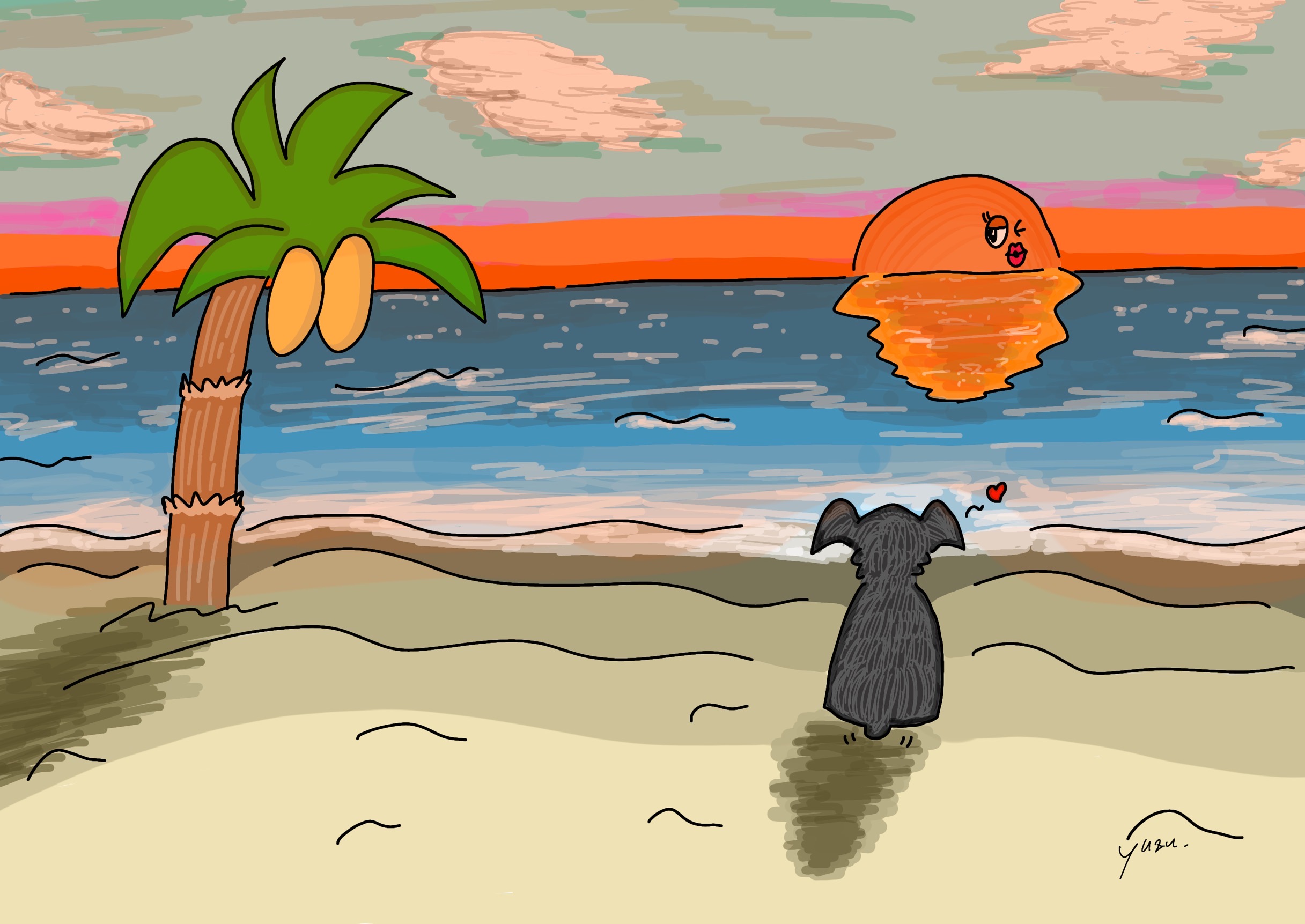
――It looks like a serious work of art. You usually balance work and competition, right?
Yes, I work for a manufacturer of electrical wires called KHD. Sales work is difficult because it requires communication skills, but thanks to that, I feel like I’m getting better at speaking (laughs).
I work during the day, and I basically have AFBB practice on Tuesdays, Thursdays, Saturdays, and Sundays. Tokyo scratchgirl matches also come in irregularly. On weekends, there are AFBB league matches, and I usually stay in the gymnasium~. I’m satisfied.
――What do you often do on your days off?
I often go out shopping. If there is no match, I go out to eat delicious food and drink alcohol. On Mondays, Wednesdays, and Fridays, I sometimes go out for some drinks near the company after work. My workplace is in Higashi-Ginza, so I go out for a drink alone in Yurakucho and the Hibiya area (laughs).
――What! you drink alone!?
I am now able to go out for a drink alone (laughs). I often go home with a quick drink, but I often eat fried chicken with a beer in my hand!
――I understand! It’s the best combination (laughs). Do you go out to drink with other athletes you get along with?
Since I met Deaf Table Tennis, Riho Kamezawa at an event, I have been invited to dinner several times and went out to a drink with her. Riho Kamezawa is also a strong drinker (laughs). As a Deaf athlete, she is involved in various activities and has a wide field of vision, so I am very inspired by her. She is a cheerful person, and it is especially exceptional when I meet her when my motivation is low.
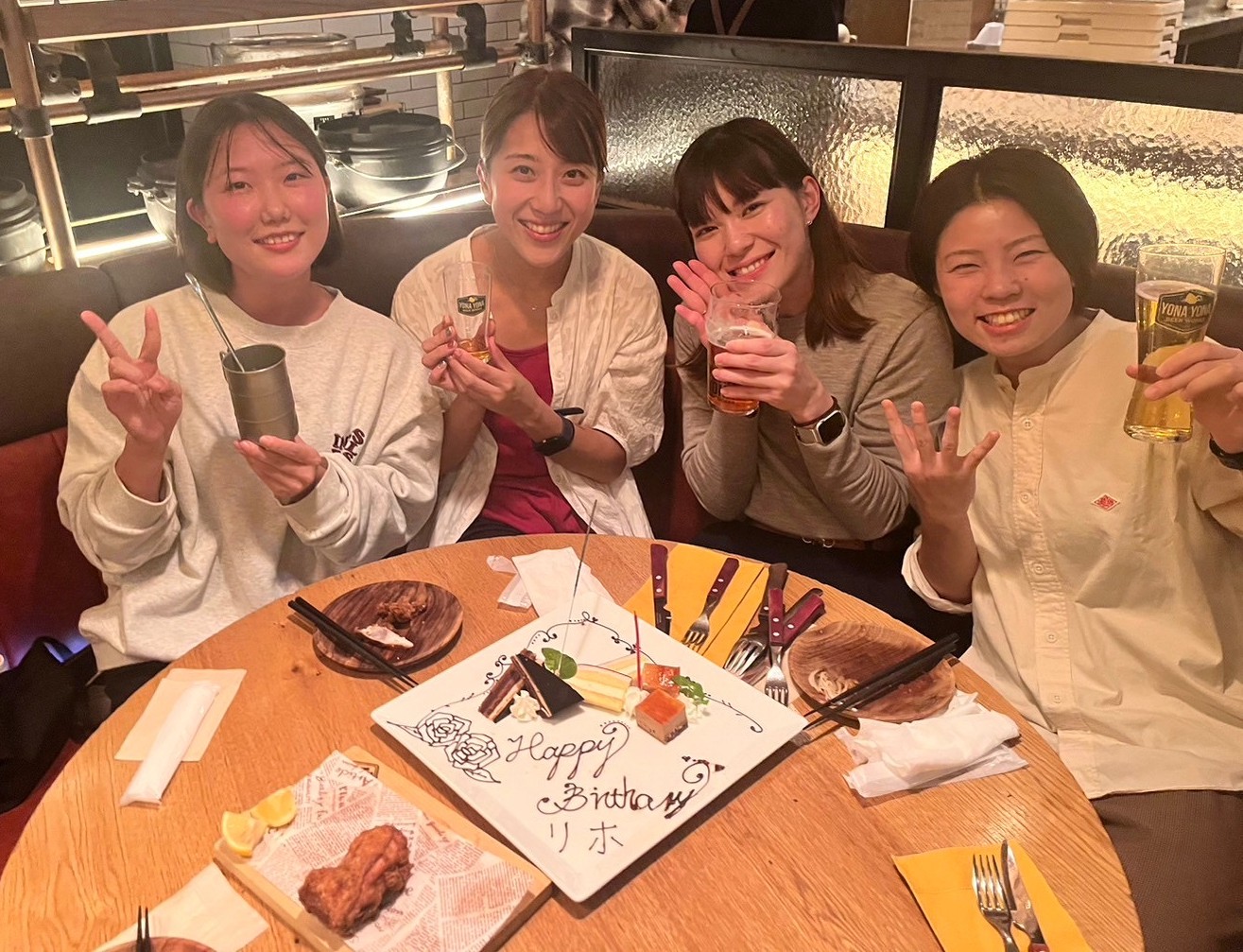
――Do you also cook?
Actually, I don’t cook. The other day, when I made a pumpkin potage soup, it turned out to be like sweet potato cake… (bitter laugh)
――(laughs)Your birthday was last month, but do you have any goals like “I want to be this kind of person” when you turn 30?
Anyway, I don’t want to be just a boring person. I want to be a person who pursues what excites me and always steers in that direction. For example, I would like to go on an oversea trip alone that I couldn’t do because I was dedicated to basketball until now! After hearing about the goodness of Hawaii from my mother, I definitely want to go to Hawaii, and I want to go when the Deaflympics are over, and I have time.
――Thank you very much for all your stories! Finally, please give us a message to readers who are looking forward to the Deaflympics.
This is a very valuable tournament that will be held in Japan and Tokyo for the first time in its 100-year history. I would be happy if you could watch not only Deaf basketball, but also various sports locally, and learn about Deaf sports and the charm of Deaf athletes.
We will also show the spectators an enjoyable performance, so please experience the unique atmosphere of Deaf basketball at the venue! The venue is the Ota Ward General Gymnasium. Let’s liven up the historic moment together!
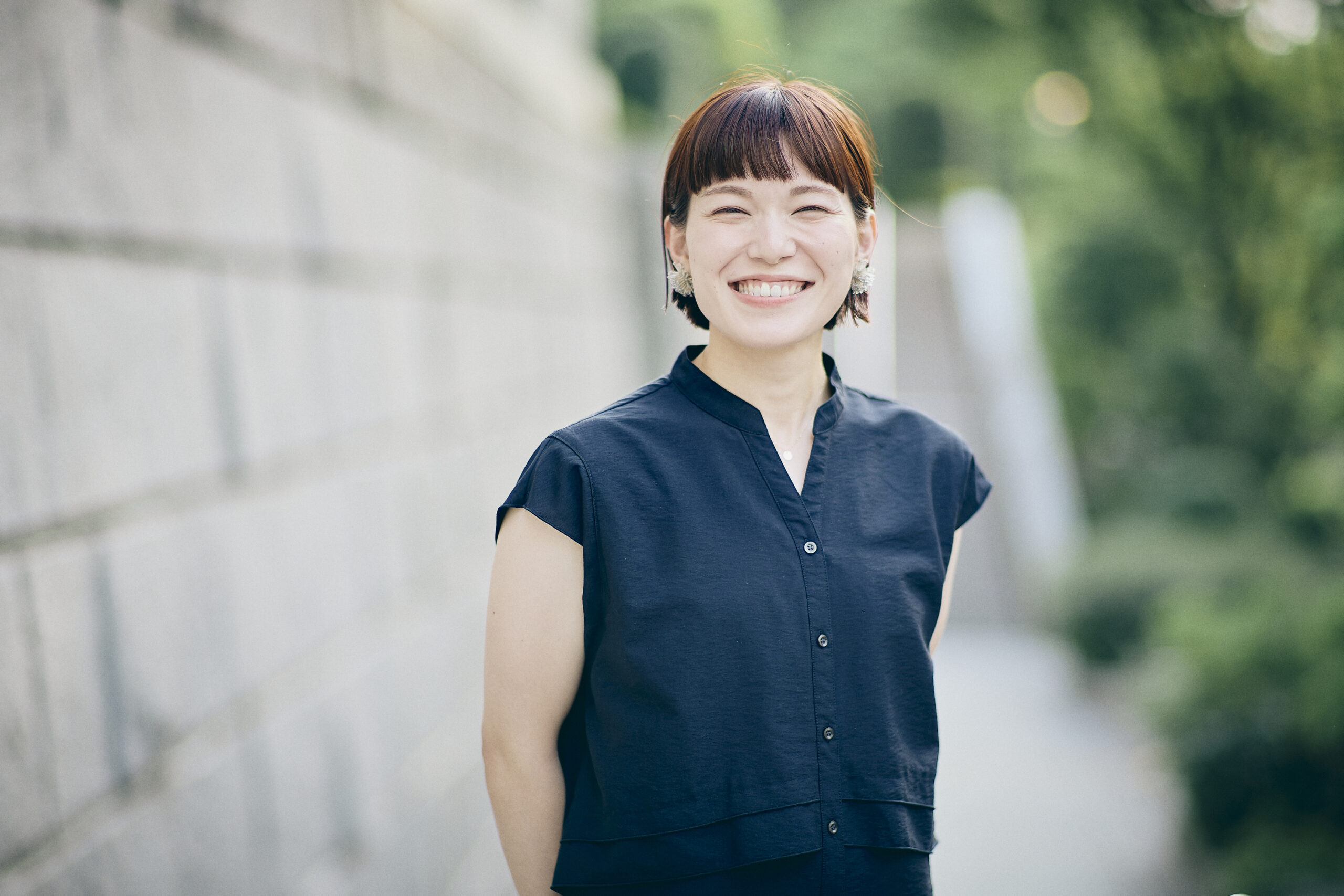
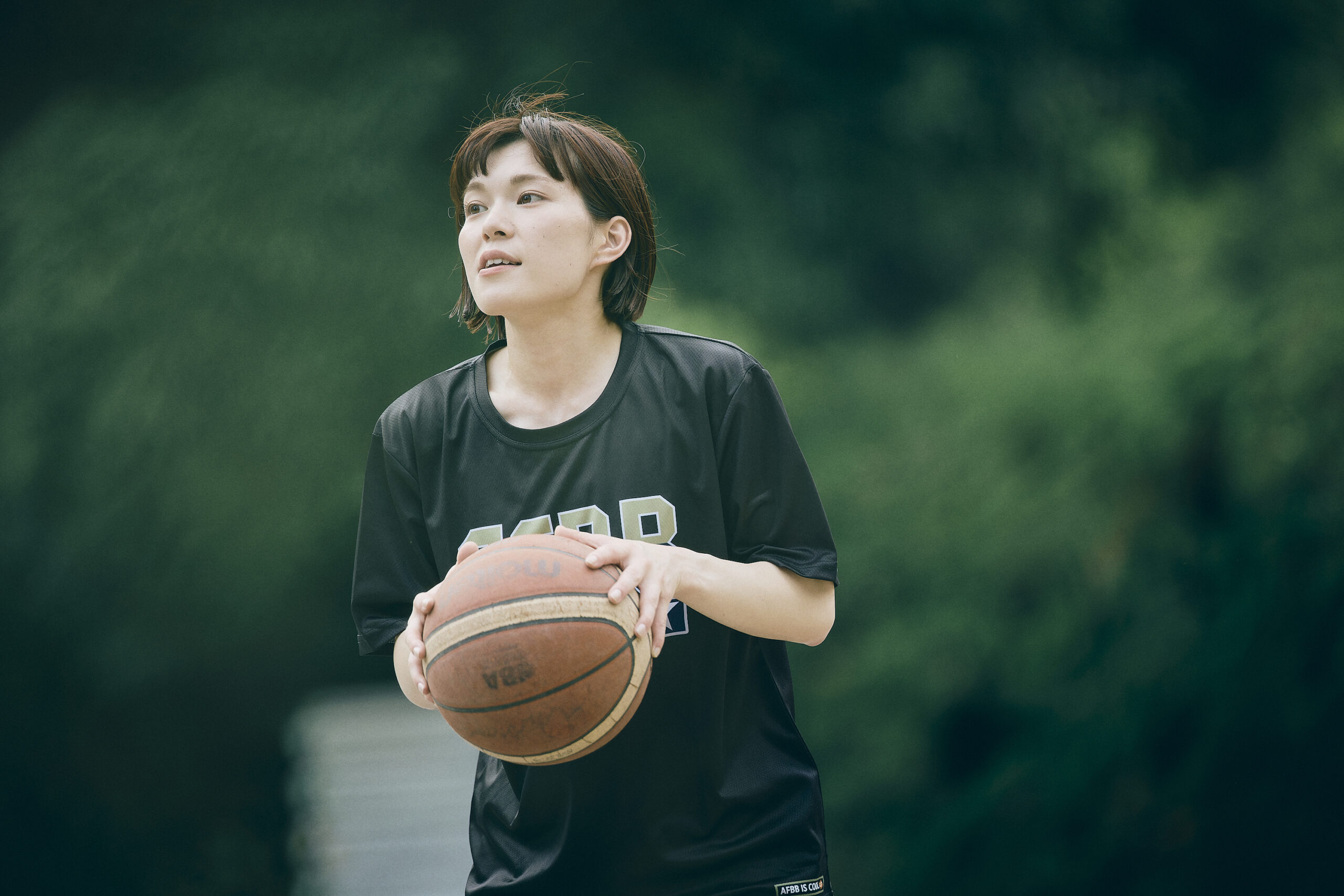
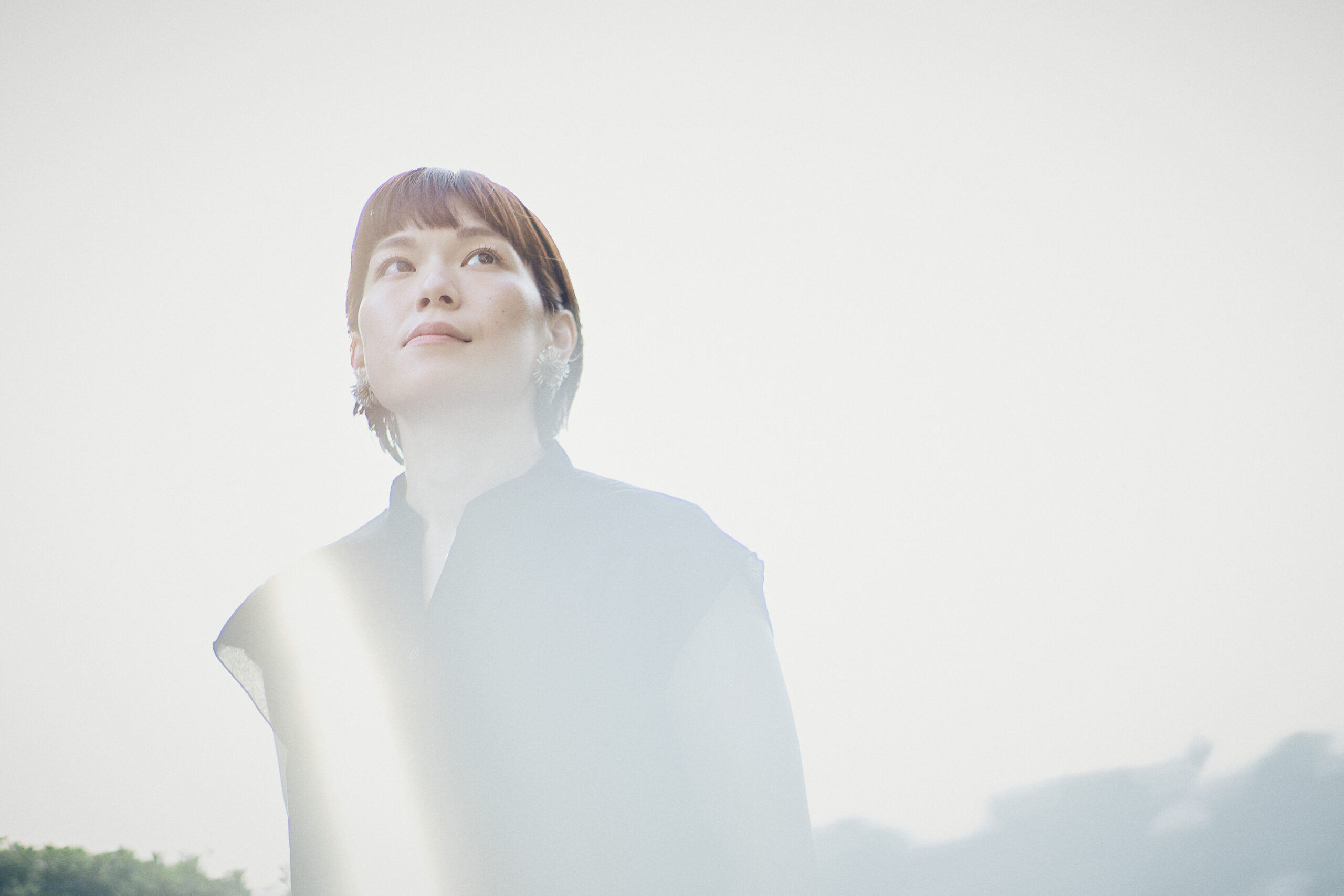
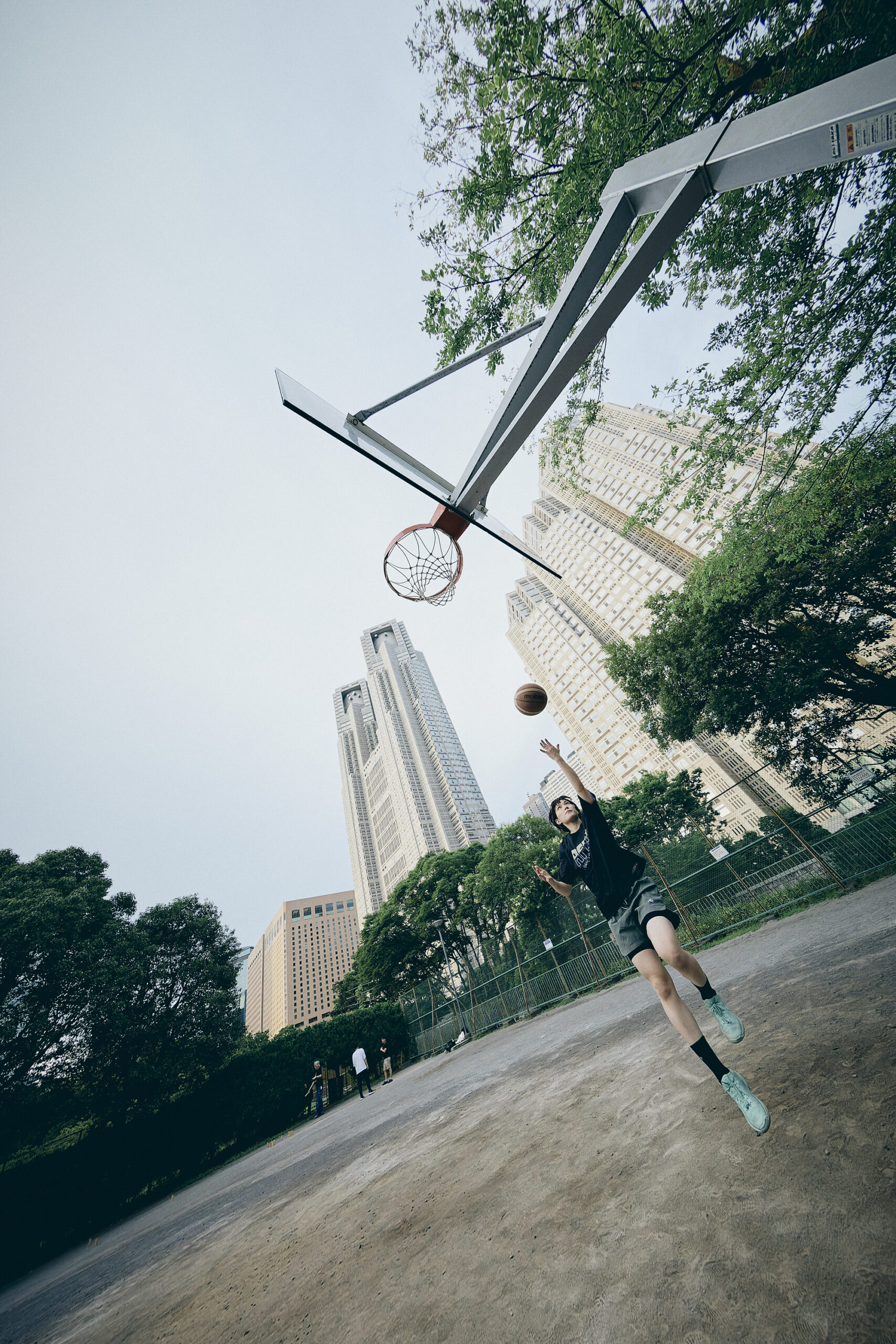
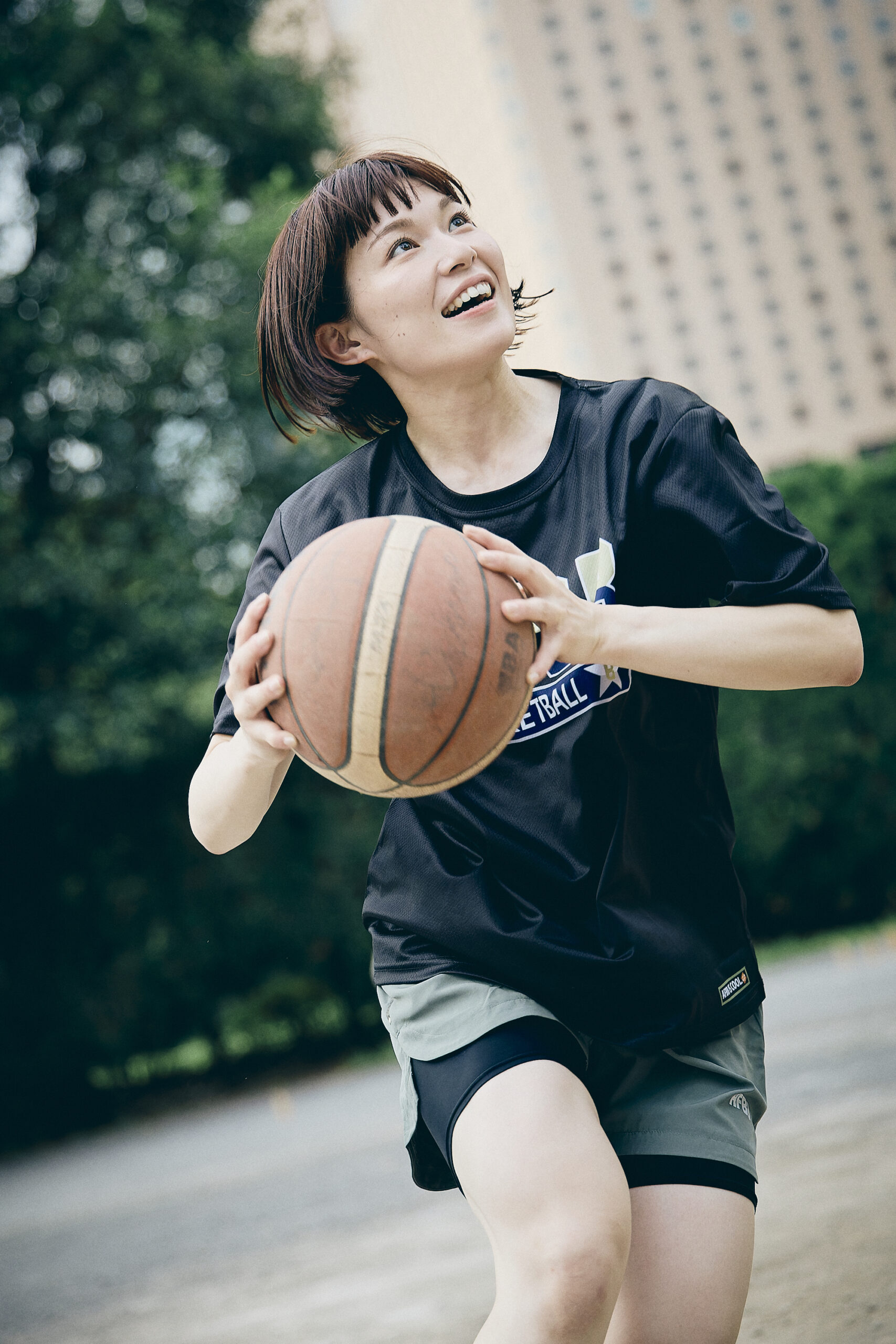
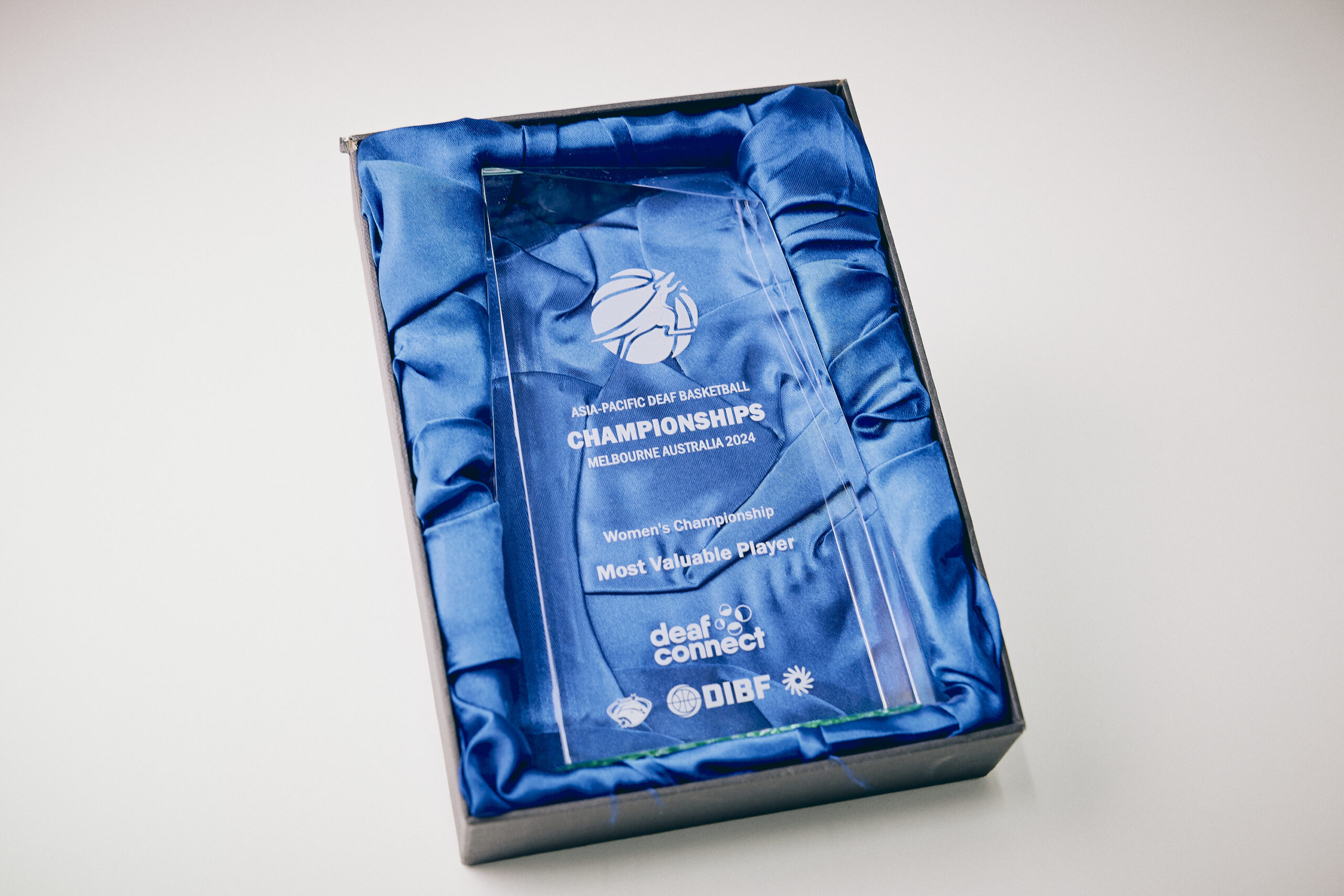
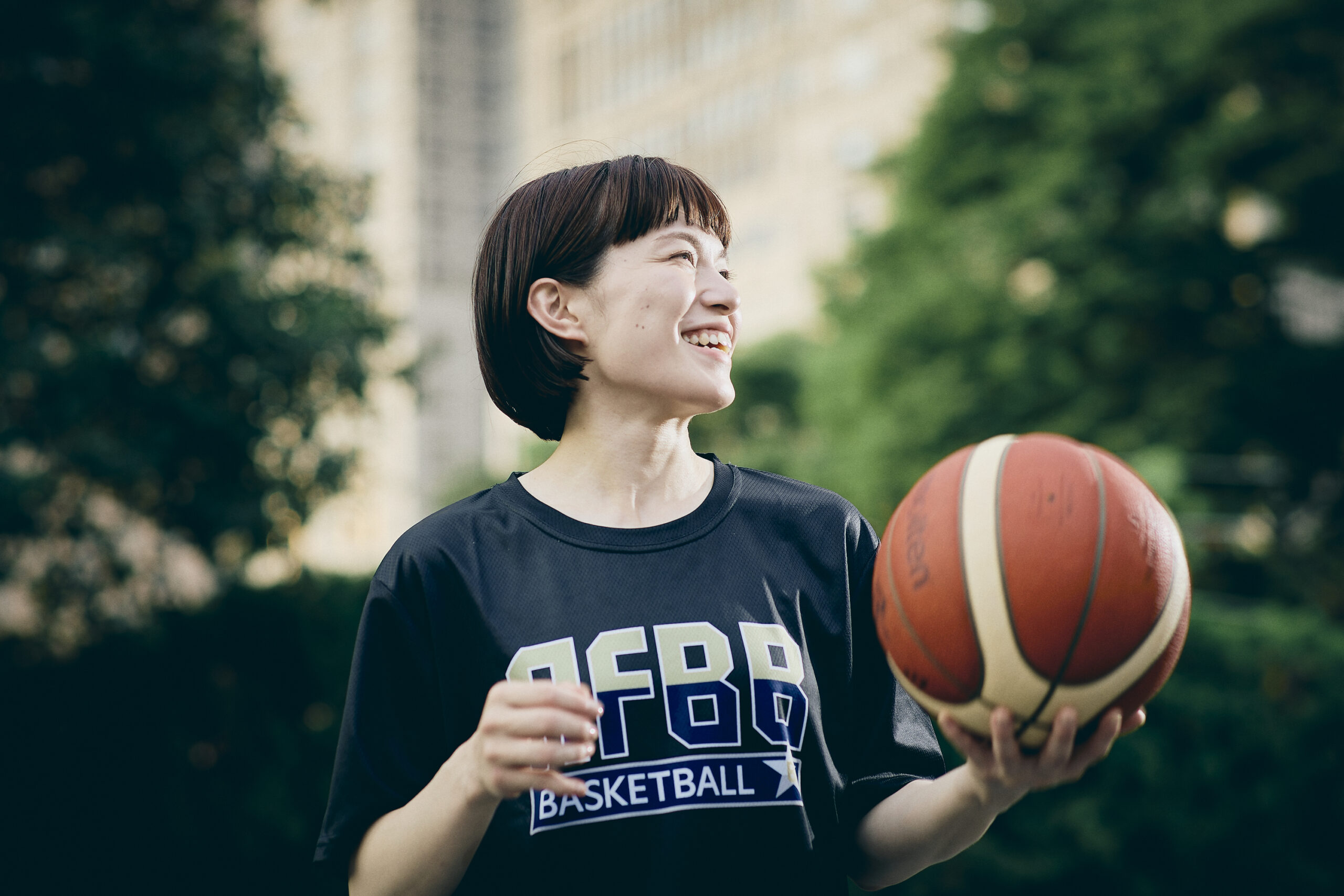
Instagram:__yuzuw__
text by Hiromi Hiraki
photographs by Uta Mukuo
